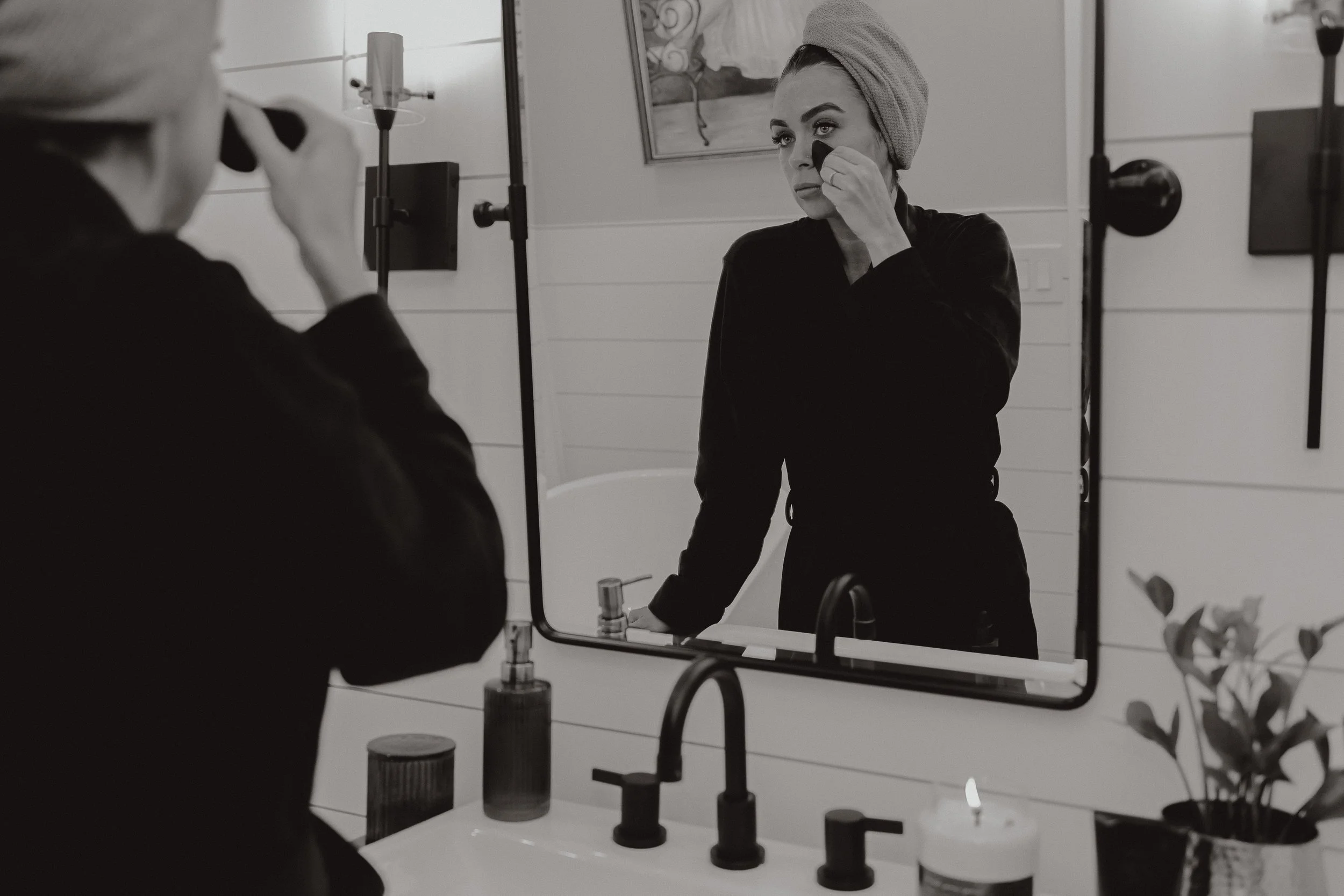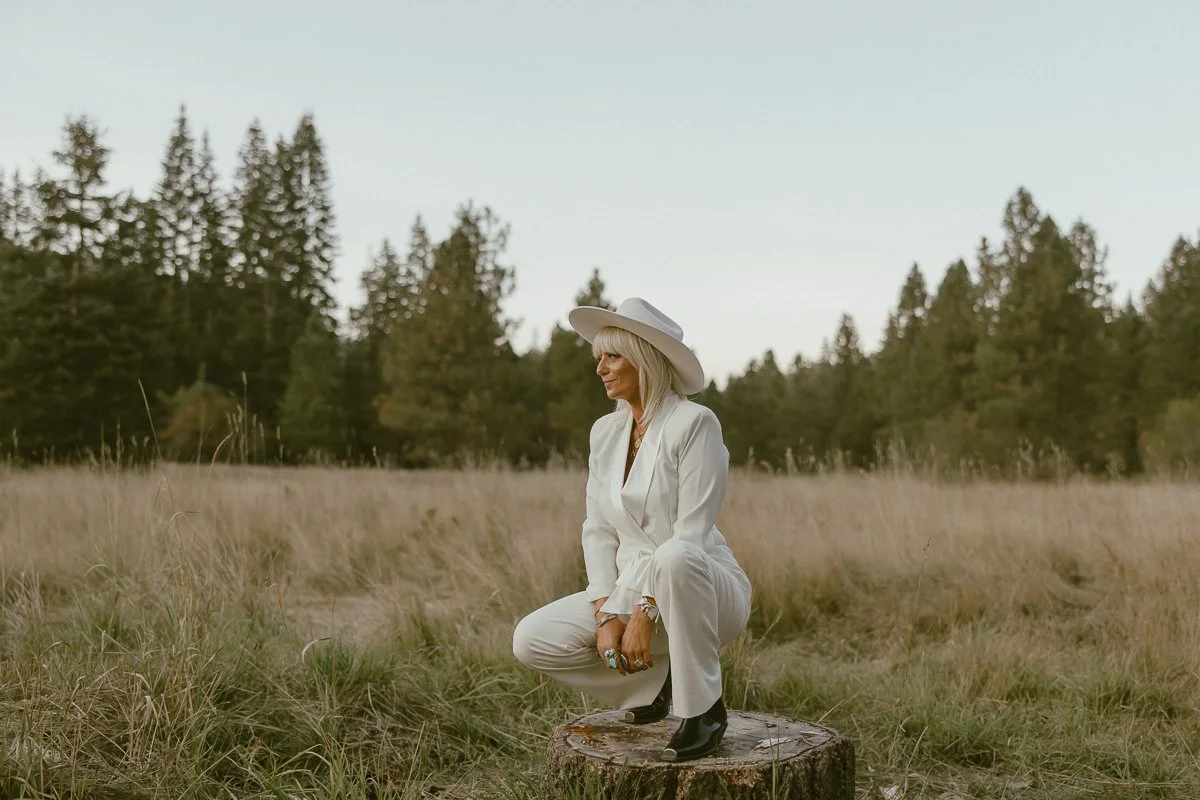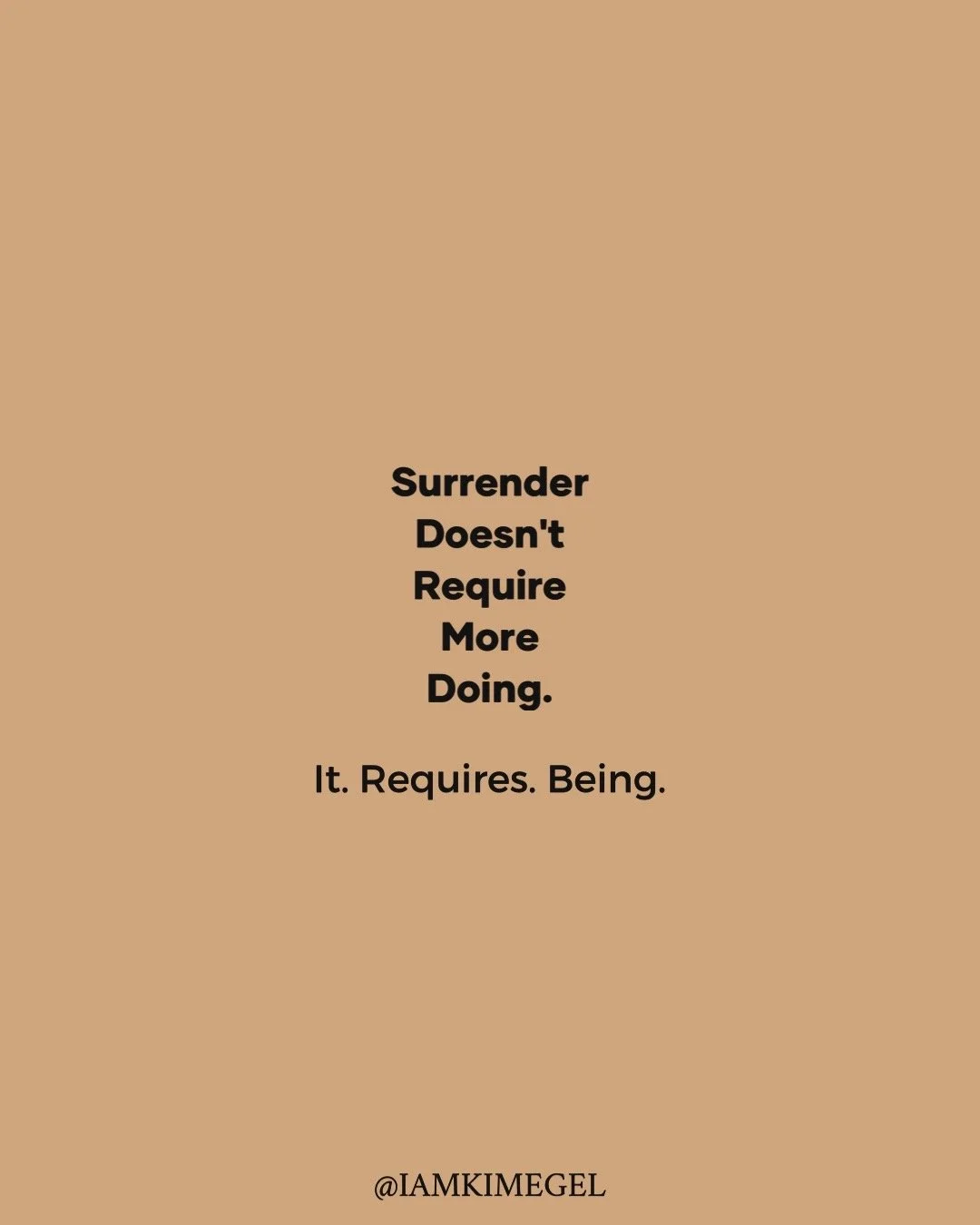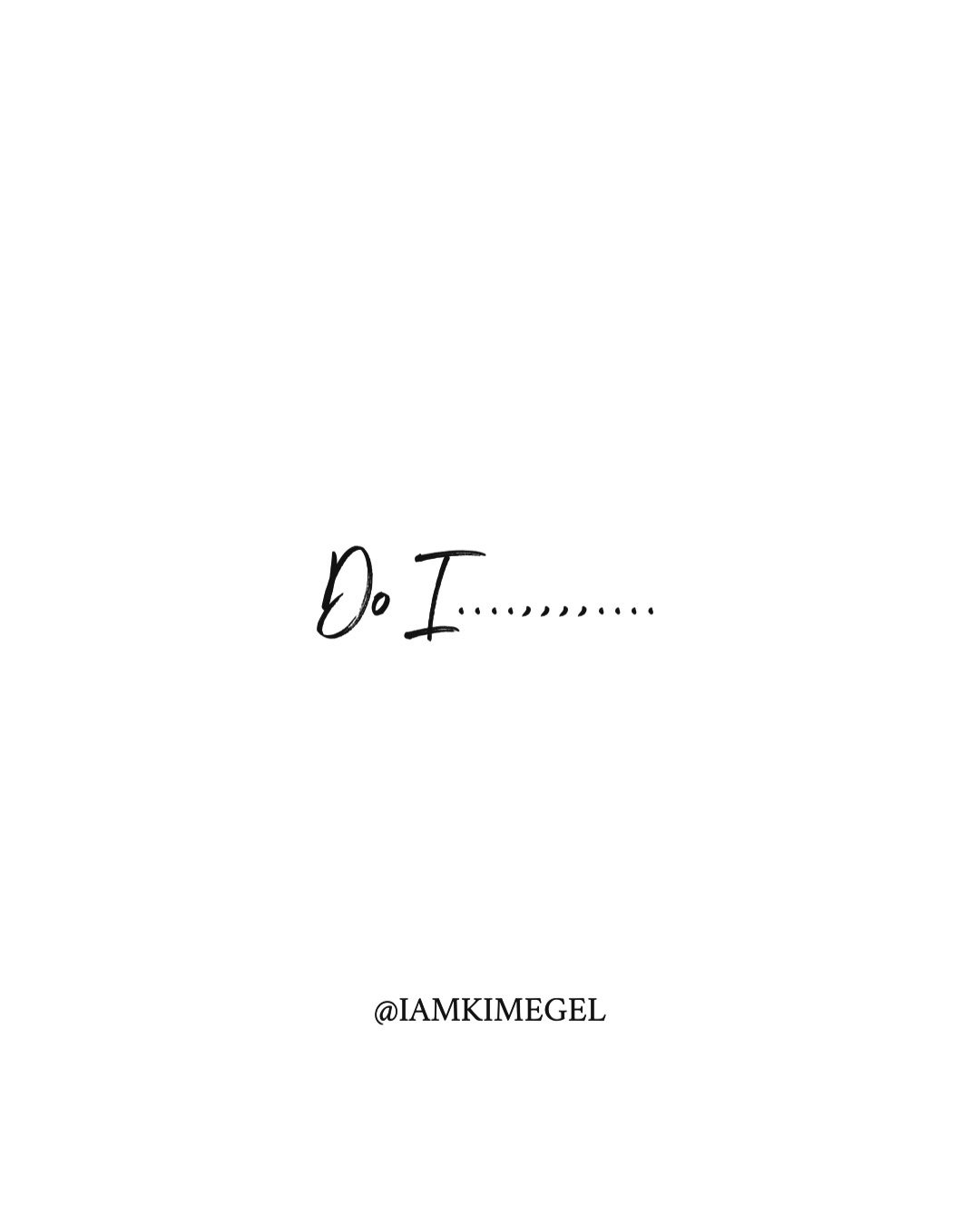What's Your Emotional Weapon? (Unpacking Defense Mechanisms)
My younger self used the emotional weapon of punishment. My punishment was silent. My quiet judgement and blocked off heart couldn’t be seen or heard, but it was.
This “punishing” behavior was extremely unconscious on my part, although, if i think back to my earlier relationships, particularly with men, I see how when I was hurt or disappointed, I punished.
Like so many of us, my claws came out when I was hurt, in pain and let down.
I cringe writing that, however it’s the truth.
The truth sometimes, and often, is not pretty, is uncomfortable and can make you feel the ick. I own this past aspect of my behavior and choose to expose it, for it’s a reminder of my growth, imperfection and journey.
Punishing is what I knew. It’s what was done to me; so it’s what I did to others. Isn’t that how it goes?
So often it is; we do to others, what was done to us.
Punishment is not a “defense mechanism” that I listed below, however it’s mine to speak of and, in this space with this particular topic, worth mentioning. I had a parent that I watched “punish” others when they felt wronged by ignoring, silent treatment, shaming, criticism, etc.
I still have to be mindful and aware of my initial response when i feel disappointment because, as we all know, old habits die hard. These days my response to feeling disappointment and hurt shows up as withdrawing and isolating. It’s shifted to more of a “self punishment” rather than an outward one. That’s the defense mechanism that I have to keep my eye on.
*Journal Prompt: What’s your defense mechanism? What do you need to keep your eye on? What do you do when you’re treated unfairly or get results from life that brings up undesirable feelings?
Defense mechanisms are ways that we, either consciously or not, have learned to protect ourselves from psychological harm. The problem is that, often, they are negative ways of coping that we developed in our younger years by modeling behavior of what was done to us. Defensive behaviors also result as ways to cope with hard feelings when we’re not emotionally or mentally equipped to know or do any different.
It takes awareness to be intentional and choose a healthy response when we’re dealing with hard circumstances. It takes emotional intelligence to handle things in a healthy way if we were never taught to do so. It takes emotional intelligence and a healthy amount of self awareness to handle life and all the challenges and feelings it exposes us too; Period.
Food for Thought: Defense mechanisms that come out more intensely in our adulthood could point to unhealed insecurities from our childhood.
Let’s go over some common defense mechanisms that we might use to cope that can be causing havoc in our lives and relationships. *Note: We’re all human and, most likely have times when defensive behaviors arise. In this particular post, I’m not speaking to the human condition of having a bad day and having a moment where a behavior that’s doesn’t highlight your best self temporarily overtakes you.
In this post I’m speaking to when the way you’re consistently responding to life, via your defensive behaviors, is causing harm. When these behaviors and forms of protection become tools for how you handle your uncomfortable feelings consistently, that’s when there’s something to reflect and shine a light on.
11 Common Defense Mechanisms
Denial: Refusing to acknowledge real facts or circumstances that lead to anxiety or unpleasant emotions. Denial can also involve altering the meaning of an event so that its impact is diverted and denied. Example: If something important to you goes wrong, in order to cope, you might twist reality by convincing yourself that “you just don’t care.”
Projection: Attributing a threatening urge, impulse, or aspect of oneself to someone else. Projection is a way of putting your unpleasant feelings or circumstances onto another. For example, instead of acknowledging that you’re mad at someone, you may accuse the other of being mad at you.
Rationalization: Justifying or validating a mistake or problem with logic and reasoning. Creating an acceptable but incorrect explanation of a situation. An attempt to validate an action, behavior or truth into something it’s not.
Intellectualization: Thinking about something logically, coldly and without emotion. It’s where intricate thinking is used to avoid uncomfortable feelings.
Avoidance: Avoiding handling a problem by non acknowledgment. With avoidance, you’ll dismiss any uncomfortable or negative thoughts or feelings without trying to understand them. You might also avoid people or places that make you feel uncomfortable.
Repression: Blocking difficult thoughts from your conscious awareness. Keeping a thought, feeling, or memory of an experience out of consciousness. It’s the “forget about it” approach. Things such as forbidden desires, painful or emotionally difficult situations could be what you would repress.
Reaction formation: Doing the opposite of what you would really like to do. Example: Going out of your way to be nice to someone you really disliked?
Regression: Returning to an earlier or more childlike form of defense. Physical and psychological stress may sometimes lead people to abandon their more mature self and defense mechanisms. Example: Whining in a childlike manner on a first date would be a display of regression.
Displacement: Substituting aggression with a substitute object. Example: being frustrated with your dad, so you’re mean to your girlfriend.
Compartmentalization: Separating components of your life into different detached catagories in order to avoid conflicting emotions. Seeing aspects of your life as separate verses a cohesive whole of what your life is and who you are. Example: “Whatever happens in Mexico, stays in Mexico.”
Compensation: The act of overachieving in one area to compensate for failure in another. “This psychological strategy allows people to disguise inadequacies, frustrations, stresses, or urges by directing energy toward excelling or achieving in other areas. While it can be beneficial at times, it can also cause problems when it is overused or misapplied.” (verywellmind)
Healing Defensive Coping
Learn & develop healthy coping skills: Examples could be establishing more effective ways to communicate, committing to regular exercise, establishing healthy boundaries, engaging in a consistent yoga or meditation practice or evolving your level of self awareness and growth.
Seek therapy: Having an environment that encourages and supports your personal growth can help you identify and shift any negative behaviors and ways of coping that you might be doing.
Increase your level of self awareness: As you increase your level of self awareness you will increase your awareness of any behaviors that you might be doing that are unhealthy or negatively impacting your life and relationships.
As always, so much of “the work” when it comes to personal wellness is continually doing and exposing yourself to things that help you grow and evolve as a human. Stay open and courageous enough to admit where there’s “work” to be done and continue to embark on the journey toward your best self.
Cheers friends. Wishing you well.
*Above image by Amy Lynn Bjornson taken of her clothing line @jadedclothing
Self Worth (Tips to Improve Your Sense of Self)
When our self worth is low, our self beliefs are limited, compromised, negative and tend to be filled with doubt, shame and guilt. Low self worth leads to a slew of problems for us; We attract low grade relationships, opportunities and experiences because what’s drawn toward us is a reflection of how we feel about ourselves.
A reflection is defined as acting as a mirror. This simply means that others behavior toward us reveals your own self beliefs and feelings that we hold about ourselves. Outer events are a mirror of our inner psyche.
Whatever we believe to be true is true. This comes into play greatly with what we believe about ourselves.
If we believe we can; we can. If we don’t believe that we can do it, achieve it or be it; we are right.
If you hold the belief, “I am not worthy,” this belief will be reflected back to you from the outside world. The actions that you’ll receive from others will manifest in the form of disrespectful behavior, a lack of appreciation and not being taken seriously.
The problem is, when you already feel crummy about yourself, it’s a given that this external response from the world will knock you down further. Unfortunately, it can be all too tempting to use this response as evidence to further your self loathing and shame. It’s really hard to fight against such frustrating, hurtful and unpleasant reflections. However, as you gain more self worth, love and respect, you’ll have the ability to do so and with that will come positive change for you both inwardly and outwardly.
The reality is; that an outside response toward you is not personal. It’s often just a reflection of your own internal beliefs and thoughts about yourself. That’s it; nothing more to read into. External responses are highlighting the relationship that you have with yourself.
(I know I’m repeating myself here, however it’s intentional as it’s my attempt for you to witness the alignment of your internal feelings about yourself to how others respond to you. This is playing out and this has always been playing out in your life.)
The good news is that you have full control over the relationship you have with Self. As you begin to commit to a self love practice and start to increase your level of self worth, the result that you get from the outside WILL shift and change.
It’s energetically how it works.
Be mindful of going toward “A false fix.” Meaning, “putting a bandaid on the problem” or wounds that need healing as an attempt to mask your low self worth. Be mindful of masking your low concept of self by operating at the ego level. Our ego gets it’s kicks via outward attention and applause. Self worth gained via our ego looks like attaining nicer possessions, higher status, higher pay, more power and control. Our defensive and insecure behaviors will be present when the ego is in the drivers seat. Operating from the ego is not the way to go for true, core healing. Ultimately, the masks you put up will fall down and your fragile sense of self will be revealed in some way, shape or form.
As the saying goes, the truth prevails.
True confidence is quiet.
Thought work: Changing your core beliefs. Changing your core beliefs will change your life. This “work” requires you to take responsibility for how you’ve been thinking about your life and yourself and deciding to change it. Changing your beliefs will change the way the external world responds to you. Most importantly, it will change the way YOU respond to YOU.
Journal Prompt: Are your core beliefs working for you or against you?
Examine what your current core beliefs are. I encourage you to explore your relationship with the key areas of your life; love, money, relationships, work, health.
What do you believe to be true about these foundational areas of your life?
Where are there limits within your belief system?
After exploring what your core beliefs are, you will have more information to understand and explore how your belief system has and is impacting your level of self worth. You should be able to see how your beliefs and level of self worth align. Meaning, if you’re being really authentic with yourself, you will see how your belief systems and sense of self match like puzzle pieces.
Here are some tips to help you work on your level of self worth.
8 Tips to Increase Your Sense of Self
improve your self talk
accept imperfection & your human moments
watch your habit of comparison
surround yourself with people that have healthy & positive influence & energy
surround yourself in environments that allow you to tap into your strengths and passions
practice self forgiveness
practice turning around self judgmental thoughts with thought work
develop a gratitude practice
Thought work- Turn around self judgmental thoughts via awareness and your commitment to shift your self judgmental thoughts as they appear. Self judgement is unproductive, harmful, unnecessary and not doing anything for you. The key to shifting your self judgmental thinking is to replace your judgmental thoughts with kind, loving, self serving thoughts, which eventually will help you arrive at self acceptance.
Self compassion/ Self kindness- the ability to be kind to oneself.
Note: Guilt and shame act as barriers to our self compassion, which compromises are overall level of self worth. Self kindness helps us heal our low self worth by orchestrating deep repair work (repairing our relationship with Self.)
Self judgement is not based in reality.
This means that when we’re caught in self judgement we’re immediately pulled out of the present moment. The symptom of being unrooted from the present will be dwelling and feeling guilt for the past.
It’s important to note that the tug of the past is strong. It’s powerful and it can easily pull you into a spiral of guilt and shame. In order to avoid being "sucked down the rabbit hole” by guilt and shame it’s essential to remind yourself that:
You’re not the past. The past YOU is not the present YOU.
The reality is that you’re the YOU in this present moment, here and now. That’s different from the YOU that you’re reflecting on from the past. Grounding yourself in the NOW is where the healing and expansion of self lies. This is why practices such as meditation and yoga are such major vessels for core healing. Any practice, really, that allows you to find peace and solitude within the Self will help you be in the present.
Ultimately, overcoming self judgement is the key to tapping into your authentic self.
To say it clearly; being compassionate and kind to yourself in the present moment will help increase your level of self worth.
In Summary / Q & A
Q: How do I get into the present moment and begin increasing my level of self worth?
A: By caring for yourself. The raw act of self care is what brings you into the present moment. Presently “feeding” yourself loving feelings, kind thoughts and engaging in healthy, positive activities and routines leads to increased self worth. Committing to a self care practice and working on eliminating self judgement from your internal dialogue, overtime, will lead to a positive shift in your sense of self.
*Self Love Meditation Suggestion: Place place both of your hands over your heart and continue to inhale through your nose and exhale through your mouth. Ask Yourself: How does it feel when I place my hand over my heart? Continue to focus on your breathe. On each inhale think: I AM WORTHY / On each exhale think: I AM ENOUGH / Continue breathing in and out while noticing the emotions that come up through out your practice.
Cheers to you my friends. If I have one wish for you, it’s for you to go through your days with an expanded and healthy sense of Self. Your level of self worth is dictating everything. Please be kind and loving to yourself. Doing so will help you attain what you are looking for in this life.
Tools to Eliminate Chronic Worry
Chronic worry depletes you of joy. When you feel less joy, you feel more exhaustion and disinterest in your life. Consistently worrying will strip your sense of feeling alive as worry can be all consuming.
For those of you who struggle with loud, anxious thoughts and worry, you don’t need me to tell you how debilitating it is; you know.
Anxiety and worry go hand in hand. Worry keeps you in fear. When in fear your ability to be empathic, creative and wise is compromised. Worry scares you from taking chances; chances that can change your life for the better. This is how worry keeps you small.
Worry breeds anxiety. Anxiety breeds worry.
The spiderweb effect of chronic worry pushes you to socially isolate, feeds a negative self concept and breeds self criticism. Over time, these symptoms of worry and anxiety will damage your life mentally, emotionally and physically.
Worry always exaggerates the negative. Always. Our worry will tends to create a bigger nightmare than what is actually happening.
If I haven’t made it clear, let’s get real, worry is a huge problem.
With all that said, my intention for this post is to uncover some false beliefs around worry, so you can detach from worry and live a more peaceful and calm life.
To begin, lets highlight the difference between worry vs. discernment.
There’s discernment, which allows us to practice healthy decision making and then there’s worry. The key to more inner peace is to practice discernment, not worry. Discernment, the ability to judge well, is a tool that helps us make healthy choices for our life. Worry is what keeps us stuck in fear.
Worry is fear based. Worry is harmful. Worry is not necessary when you can choose healthy discernment instead.
In order to heal anything in life, we have to have awareness. This leads to the question:
Why do some of us choose worry or default to worry?
In short, the answer is because we think worry is protecting us and we fear what would happen without it. We have false beliefs around worry that keep it active and firing. Here are some false beliefs around why we convince ourselves to worry that we have to deconstruct in order to ditch our anxiety and fear.
False belief#1 Worry helps protect me from getting hurt.
The theory goes something like this: “If I expect the worst, then I’ll be prepared if the worst happens, so I have to keep worrying to ensure that I don’t make a mistake.”
Not true, my friends. Please stop your over active, fear based mind from scaring you into playing small in your life with this belief. This way of thinking is actually doing the opposite of protecting you from getting hurt. With anticipating the hurt and in your attempt to avoid it, you’re actually calling a negative result more toward you.
Remember that, no matter how hard you try, you cannot predict life and you certainly cannot control the actions of other people. We’re meant to live life; not control life. As you learn to let go of control, you will see that your fierce grip on life circumstances is causing more issues and less flow. Even though it feels like you have to grab tighter to ensure protection and control, letting go is the more healthy and balanced choice.
False belief #2 My worry can protect me from unwanted future events.
Not true. The thought here is that: “If i think hard enough about it; I can prevent unwanted happenings.” (If I think hard enough, I’ll figure it out.) Over thinking does not lead to genius conclusions; over thinking creates more fear and stagnation. I’m all for healthy discernment while contemplating a choice, however if you continue to stress, worry and over think beyond discernment; discernment becomes worry.
Please realize that no matter how hard you try; you can’t control the uncontrollable. If you die trying, you will live a life of much suffering. It doesn’t need to be this way.
As you improve your relationship with uncertainty you will organically be able to lessen your grip on life. As you do, beautiful things will have the space to move in. You can learn to let go more by practicing trust in something bigger than you.
False belief #3 I’ll have to feel a lot of guilt and shame if I don’t worry about something that ends up happening.
Not true. This belief is a product of your anxiety and worry playing a mind trick on you. Guilt and shame are emotions that are important to work through as they come up in life. You can’t control when such emotions will come up based on how life plays out.
In terms of keeping guilt and shame at bay, all you can do is “your best” when handling life situations. At some point, letting go of control is mandatory in order to avoid becoming swallowed by over thinking, worry, guilt and shame. Some times, no matter how hard you try, things are going to pan out differently then you expect or desire. This is just the human condition and it has nothing to do with you not worrying and doing enough damage control.
Expect doubt. You will have doubts arise as your navigating through life. Doubt is a normal emotion that will poke it’s head in when you’re embarking in new waters or challenging yourself to higher feats. The key here is to be with doubt, without attaching to doubt.
Learning how to BE with any sense of guilt or shame and working through those feelings is the practice here. Guilt and shame might come up, however they do not need to dominate and take you down a rabbit hole. The problem is not that those emotions are surfacing, the problem arises when those emotions are not handled properly. The healthy practice is learning how to allow any feelings and emotions coming up to be with you without attaching to them. It’s allowing emotions to come up without letting them lead you down a negative thought spiral that keeps you stagnant and in fear.
*Feel free to read my post on how to feel your feelings for more insight on how to allow difficult emotions HERE.
False belief #4 Worrying is how I show that I care.
Not true. Just a friendly reminder; worry is fear based. There’s no need to show concern with fear leading.
Worry is riddled with anxiety and scarcity. Putting those feelings onto someone else is like handing someone a box of angry bees waiting to sting and buzz all over them. Be mindful that your anxiety and fear are energies that can get all over someone else. Worrying about someone and twisting it into a story that means you care is not necessary, untrue and unhealthy. There are plenty of other ways to show your love, care and affection for others besides your anxiety and fear dumping onto them.
With all these false beliefs it’s your awareness of your anxiety and worry creeping in and trying to take over control that is going to be your saving grace. It’s normal for concern to arise when your making decisions in your life. Especially when you’re taking action that’s pushing beyond your “normal” comfort zone. Wanting to choose wisely is a good thing. That tells me that you care about your life. The trick is to make wise decisions without getting bogged down with worry and fear.
3 Tools to Cope With Worry
1. Allow, acknowledge and accept the worried thoughts. As mentioned above your practice to combat worry is to allow all your emotions to come up without attaching to them. Breath through them. Workout through them. Do what you have to do to allow your feelings to come up and be processed so they can dissipate. That’s how you can move on without holding onto unprocessed fear based feelings.
2. Find the exaggeration in the worried thought. (Stay light minded) Bring in some light energy by calling out the exaggeration in your worry. Find a way to lighten the worry that you’re creating in your mind by finding where the exaggeration is. Witness your thoughts and see if you can identify the, at some times extreme, exaggeration in your worry so it can lose power and control over you. You can also try humor; see if it works for you to lighten your energy in times of getting too much in your head.
3. Stay in Action: Resume positive action in your life. Stay present and engaged in your life when worry comes up. Be in your life and body, not in your head. Worry will pull you into your head by focusing on possible future outcomes. Do what you need to do to BE present. Resuming activities where you can expel positive and productive energy will help give your mind a place to settle.
Recovery from chronic worry:
Don’t keep your worry a secret and reach out to trusted sources for support. Being alone in worry can give it more fuel. Release your worried thoughts. Here’s a few ideas on how to do just that:
Journal about them.
Tell a trusted friend about them.
Use physical movement to push through heavy worried emotions.
Release them out of your body via breath work.
There are options for you to choose from in terms of how to work through your anxiety and worry that will come up in life. Knowing how to do that will greatly help you stay more rooted when those emotions surface.
I hope this post finds you healthy and happy. Much love. Kim.
This post was inspired by teaches from the book: The Worry Trick by David A. Carbonell
*Above image is by photographer, Amy Lynn Bjornson.
RADICAL HONESTY (what it is & how it will expand your self growth)
One practice that can expand your level of self growth is radical honesty.
What is Radical Honesty?
Radical Self honesty calls the suppressed parts of self to the surface. It’s a practice that asks you to be 100% authentic (or as truthful as you’re capable of at the moment) with yourself. Especially the parts of self that are easy to blow off, ignore or hide because of the uncomfortable emotions and feelings connected with those parts or life experiences.
At some time or another, we’ve all probably experienced the struggle that comes with opening up about certain topics and emotions that are uncomfortable and sensitive. It’s like touching an injured physical part of yourself. It’s tender and sensitive to the touch until it heals.
The emotional parts of self are no different. We just can’t physically see our emotionally wounded parts, which makes it easier for some of us to compartmentalize them or ignore what needs healing and attention.
From first glance this concept can seem trivial, simple even. You might even wonder why I’m writing a whole blog post on the topic of honesty. I mean, what more is there to say? Be honest with yourself, simple, right?
W E L L………
From my experience as a therapist, one thing that I’ve continuously witnessed through the years is how hard it can be for some of us to see and face “the truth.” The truth meaning the hard facts of what did happen, what is happening and what it all means and where it has placed us on this ever moving, giant, blue & green colored (as pictured in my head) ball called Earth.
Why I’m writing this post: So you stop or don’t start hiding from your truth.
Radical honesty, however simple it may seem to some, is something that many of us hide from.
Many of us do hide from our uncomfortable parts. Many of us live our entire lives hiding.
Some of us never get to a moment in our lives where we can fully see and accept the truth of what happened or didn’t happen and where we are now because of how everything has fallen into place.
The concept of radical honesty is vast. It’s big. It requires bravery to admit the truth. Especially a truth that’s dirty, scary and is filled with shame and embarrassment. Facing such a thing is a huge feat. Please don’t downplay it and honor this courageous act on your part.
Why Practice Radical Honesty?
Until we stop hiding from our truth, it will be merely impossible to not distract, avoid or numb out. We have to keep up our unhealthy distractions to continue to black out the screams coming from our unhealed parts.
Not accepting what is or what happened is where addictions are born. It’s where disconnected relationships live, primarily the disconnect within yourself. So, to say it straight, being fully transparent with yourself is a key ingredient to an expanded self.
“Your ability to see yourself through the lens of radical honesty is the foundation of emotional maturity, and this vantage point will help you make decisions from a place of active clarity, instead of a place of passive unconsciousness.” - Lighter, Yung Pueblo (love him!)
3 Major Benefits of Radical Honesty
More clarity within. More clarity within allows you to make life decisions and every day choices that align with your true self, which, (you guessed it) will lead to results that are more fit for you. Opportunities, people and life will play out in a way that’s more in tune with who you are at the core.
Facing what’s scary and hard is what allows “it” to lose it’s power over you. The hardest part of facing what’s scary is building yourself up to face it or do it. However, usually, once we get ourselves to do just that, (confront the beast) what was so scary looses it’s power over us. (*Also, usually, it’s never as scary as we thought. )
I encourage you to, little by little, go toward your fear and, over time, with intention and doing the work, your fear will diminish.
You will attract more authentic people and experiences to you because authentic self honesty attracts authentic external honesty. Simply put; Honesty internally attracts honesty externally. It’s that simple. It’s that magnetic.
Problems That Arise When Were Not Radically Honest With Ourselves
The truth is, whatever we don’t fully heal doesn’t miraculously go away. As we have all heard, the only way out is through and so is true with difficult emotions. Anything that we haven’t fully processed will manifest and be expelled in some other way, shape or form. Repressed emotions can be expressed through your anxiety, your anger, your over eating, your overuse of alcohol, your lack of self confidence or your depression. Need I say more?
This post is to encourage you to look toward the parts of self that need and are calling for your attention. In order for any issue, past trauma or stuck emotion to heal, it needs to “face the light” in order to be tended to and laid to rest peacefully within.
My intention for guiding you toward your “uncomfortable” aspects of self is, not to torture you, rather it’s to expand you. My intention is to help you heal and get beyond the blocks that are holding you back.
(Before I go further, I would love to clarify the following: *This post is not focused toward persons who have experienced high levels of trauma. In the case of high trauma it’s important to work with an experienced professional to unpack unprocessed traumatic events.)
Who is this post for?
This post is for the person whose functioning, yet is experiencing a lack of fulfillment and blockage, whether conscious or not, due to a denial of the truth. Meaning, a person whom either lacks self awareness or is consciously choosing to deny the truth of what has happened or what is happening in their present moment experience.
Are you with me? I hope so, because looking at something that has been buried away within can be really intimidating, but worth the work.
In order for you to identify your unique “hard truth(s),” I will ask you to spend some time looking at any avoidant behaviors or topics where you experience resistance. *Note: Usually, distractions, busyness, addictions and negative habits are formed, unconsciously or not, for us to avoid what we don’t want to admit, deal with or look at. Generally, we avoid in order to numb out difficult aspects of ourselves. This is a defense mechanism in order to keep a difficult truth away. This is what leads us down a road of struggle.
Oh, the struggle is real too.
When we have a habit of turning our attention away from the truth, negative habits & distractions build, while creating major havoc in our lives.
Questions for Self Reflection & Exploration of Blocked Truths
Here are 4 questions to help you explore and potentially help you discover the areas of your own life where you may be hiding or avoiding “the truth.”
What topics (if any) do you avoid when they come up? (in life, in conversation?)
What do you do to avoid thinking about or talking about such a topic? (change the subject, push it away, etc)
Are you experiencing any symptoms that are effecting your emotional and/or mental wellness? (ex: trouble sleeping, anxiety, depression, lack of energy, low self concept, feeling lost, etc)
Are there any insights that you have about your behaviors or symptoms which you intuitively know are connected with a tendency to pull away from your truth?
“Okay! I’m ready! How do I practice radical honesty?”
Questions to Help You Untangle Your Hidden or Rejected Truths
How do you face things that feel too scary and difficult to face?
Generally speaking, little by little and maybe with the help of a professional depending on the level of resistance and blockage around “your truth” and lack of acceptance of what is. Start with respecting and accepting where you’re at in terms of your relationship with the truth. It’s like anything in life that feels really intimidating or nearly impossible, you just go one step at a time and build on that.
Also, increasing your level of introspection, self awareness and emotional intelligence will help you gain the tools and confidence to go toward the “scary” stuff.
How do you accept things that feel impossible to accept?
It might take awhile to find and arrive at “acceptance.” It’s a process to work through hard issues, losses and moments in our lives where there is resistance. Begin with accepting where you are currently. Whether it’s pretty or not. The concept of shift and change begins with acceptance.
What are strategies that can help me face hard emotions around the “truth” of my current circumstances & past?
Make sure your words are matching your actions. Does what you say match what you do? Are you telling yourself and others the truth (a fact) or a story (a fantasy?) Start practicing radical honesty by being truthful on a daily basis with simple things.
Allow space for difficult emotions to come up, process and be experienced so they can pass. Allow a figurative “winter season” to be there. You might find yourself wanting more quiet or more sleep during this period of pushing through hard emotions. Heads up: Doing this work can feel exhausting not only mentally, but physically too.
In a nutshell; Be gentle & patient with yourself.
All my feedback speaks generally to how to start doing the deep inner work that being radically honest requires. There’s work to be done beyond this blog post, but if you feel like these words have opened something up for you, there are a lot of ways to continue to build your level of self to further explore your suppressed parts.
For some this might mean seeking out a licensed mental health professional. Some might want to start with getting their self care basics in order (see below.) Some might want to sit with the words from this post and see what opens up from allowing this material to sink in.
Here are some general practices, that when done consistently and when they become a lifestyle, really help to balance your energy and help you expand to your best version of self.
Practices that Encourage Further Self Growth & Awareness
find a mental health therapist to further explore (if appropriate & the right next step for you)
develop a journaling practice
develop a meditation practice
move your body consistently
eat balanced & well
be mindful of your alcohol & caffeine intake
practice healthy boundaries with Yourself & Others
work on exploring your self identity
be consistent with your sleep schedule
(All these “little” things have the potential to lead to big change. I’ve seen clients change one small habit that, overtime, led to a massive life change. *Note: Don’t dumb down what tiny small shifts in everyday habits can do for your life.)
As always, thank you for reading. Thank you for being here with me. Truly. I’m always listening, so don’t hesitate to reach out with any questions, topic suggestions or whatever else I can help with. Cheers my friends!
The book I’m currently reading and loving: TINY BEAUTIFUL THINGS
*Above image is by photographer, Ashley Williams.
Healthy Perspectives for a New Year
Just as the weather varies, the same is true for our emotional state. It changes. It shifts. We experience all kinds of emotions as we go through our days.
The changing of emotions is not a negative unless we see it to be. It’s neutral. It is what it is. It’s the human experience.
There’s a healthy range of contrast that your emotions will naturally go through. Accepting the contrast of your emotional life will bring much less suffering and more peace to your days.
(*For this post, I’m referring to a healthy range of emotions. I’m not speaking to unstable emotional states that dip dramatically and cause problems in your career and/or personal life.)
It can be snowing (figuratively) in your world emotionally and then quickly become sunny; just like that.
Meaning, you could be fired by your job and two weeks later land the business opportunity that you’ve been waiting for.
You can be devastated by a break up and then fall back in love months later.
It can happen. It does happen.
Things can change fast in life. Things do change fast in life.
When you’re living fully your emotional world will have turbulence and fluctuations. That’s the consequence of putting yourself “out there” in the world and taking chances.
How well you navigate your life’s “turbulence,” meaning the different states, moods, emotions and experiences, will dictate your level of happiness. Judgement of your circumstances and seeing them as “bad” will bring you sorrow and pain. Viewing your life as a constant opportunity to learn and grow will help you keep your spirits bright, even within the darkness.
The judgement of your current circumstance effects your emotional state more so than the actual event.
Remember this, as this will always be true.
It’s not what happens to you; it’s how you perceive what is happening.
Resistance toward what is happening will always make things harder than they actually are.
This is not to discount your pain. Rather, it’s to highlight what you can control, which is your perspective.
Do your best to see things as they are. Watch any tendency to taint an experience with a negative story or judgment . This will help you to see things with more clarity and truth.
In a nutshell, it’s how you decide to feel about what’s happening to you and the labels that you put upon your circumstance that dictates how you will feel and, furthermore, how your life plays out.
One thing to remember if you’re in the mist of an emotionally difficult time is that a mental blue bird sky is coming. Meaning, a break from “the hard.”
What’s a blue bird sky?
definition: denoting or relating to a period of time characterized by sunny, cloudless weather, typically after a night of snowfall.
WAIT. FOR. THE. BLUE BIRD. SKY. AS. IT. WILL. EVENTUALLY. APPEAR.
Just as fast as a storm can push out and leave a blue bird sky, the circumstances of your life can change on a dime.
A love can appear. A positive opportunity can present. A new friendship can blossom. New people, places and things are waiting to engage with you if you can open your eyes to the possibilities.
You have to believe that good things can and will happen for you; for good things to come your way.
why would you think that good things can’t happen for you?
why would you think that you are exempt from experiencing the beautiful things that life holds?
why would you be the one left out from experiences that you desire?
(*Feel free to use these journal prompts to explore any blocks that are limiting your happiness and belief in positive outcomes.)
Sometimes, we can’t imagine anything changing in our lives and feel extremely stuck in our circumstances. If you can gain flexibility in your thinking to believe that things can shift and change, movement and flow will increase around you and you will find your circumstances shifting.
JUST. AS. A. BLUE BIRD. SKY. GOES. FROM. GREY. TO. BLUE.
THE. CIRCUMSTANCES. OF. YOUR. LIFE. CAN. IMPROVE. WITH. GOOD PERSPECTIVE. WELL INTENTION. AND. BELIEF. IN. POSSIBILITIES.
Please remember these words, especially in times where life presents you with its hardships and challenges.
Happy 2023. Wishing you joy, good things, adventures, growth and sending you love and good energy to catapult this year. Yew!
Thanks for being here with me.
*Above image is by photographer, Ashley Williams.
Tips for Better Decision Making
Just like many things in life, making good decisions is a practice. It’s an art that is uniquely yours to craft. Knowing what’s right for you given who you are and where you are in life is invaluable to respect and honor what you want. Good decision making will greatly influence your ability to follow "your unique truth" and live a life that’s authentic to who you truly are.
It could feel really hard to make good decisions if you weren’t brought up to do so. If you weren’t exposed to others who made good choices or taught how to evaluate and decide, it could be a stressful and overwhelming task.
If this speaks to you, you’re not alone in feeling this way.
If you align with decisions being scary and overwhelming, this post is for you.
To say it simply, decision making is a learned skill. Good news: It’s something that you can practice and get better at. All that is required is intention, effort and the belief that you can improve.
A higher level of self trust combined with a history of making choices that serve you well will create your more confident ability to decide.
It's common to struggle with making decisions, especially when you have a habit of looking for answers outside of yourself. Meaning asking others for your answers or looking for external things to make decisions for you. When we avoid making any decision because of indifference or an inability to choose, usually that means that the decision gets made for us. If it’s not made for us, then we might not even realize that we, very passively, just made a decision.
After all, No decision is a decision.
Here are some tips to explore in order to help you clear distractions and, therefore, see with more clarity the self serving decisions that are waiting for you beneath all the noise.
Tips for better decision making
Get clear on your priorities / values. Clearly knowing what’s important to you will help you see the opportunities and people that align with your priorities. When you’re clear on your values, decision making becomes much less confusing. Your priorities act as your unique guidance system. Priorities and values clarify. They help you to see what is for you and what to pass up on when it comes to making decisions.
*exercise: Journal and list your top 5 priorities. Example: I value my health, my family, getting enough sleep, my integrity, continued learning, etc. When an opportunity comes your way that would be compromising one or several of your values, you can than decide if “it’s worth it” for you to compromise a specific value(s). Ultimately, you are the only one who could possibly decide what tips the mark if it’s a yes or no.
Increase your level of self trust/self worth One major reason why we might struggle when it comes to decision making is due to a lack of self trust. If we don’t trust and believe that we make good choices, that’s a huge block toward healthy decision making. If we have a shaky sense of self our meter of what’s “the right choice” will be difficult, if not impossible, to see. Increasing your amount of self awareness and self love will help you identify and zone in on what’s a good fit for you.
Spending time intentionally working on your relationship with yourself by taking care of your physical and emotional needs with healthy self care practices will allow you to feel better and more confident. Overtime, a wellness practice will help you gain more inner peace and an overall better relationship with yourself. This will help you to make better individual choices generally.
This tip is not a quick fix. As we have heard, like most things of value, they don’t appear overnight. It’s a commitment to embark on your self discovery journey. It could never fail you to invest time to grow, heal and expand yourself. This is not to deny that the journey requires radical honesty, courage and vulnerability. Needless to say, working on increasing your self worth will benefit you way beyond decision making. To say it simply, you will see the positive impact via how you make smart decisions for you once you begin your self healing journey.
This is such an important topic and if you want to deep dive into it further, check out my blog post on the topic HERE.
Practice tuning into your intuition. Our intuition gets clouded with a habit of looking outward for our own answers. Our intuition is muffled with noise, distraction, overly doing in any way, shape or form and by being busy. When you don’t have space to hear your own inner voice, a barrier has been created that silences your inner knowing. (Yes, you have an inner knowing. It’s in there even if you’re convinced nobody is home.) Sometimes we’ve been so pulled away from our intuitive self that work is required to rediscover it’s whisper. With the intention, want and continuous commitment to tap back into your sense of intuition, the whisper will become louder and louder overtime. truth.
Here are 6 tips on how to reestablish your relationship with your intuition:
spend time alone.
meditate.
Spend time in nature.
Develop a journaling practice.
Tap into your creative side.
Clear the clutter in your external & internal space.
Tapping into your intuition is another HUGE topic where there’s so much more to expand on. If you’re curious to go further into this topic, check out my blog on the topic HERE.
Be intentional about looking inward vs. outward for your own answers. Nobody can possibly know what’s best for you other than you. The problem comes when you’ve detached so much from your sense of self that you have lost all sense of direction of what’s “right” for you. This is a moment to realize that there’s two ways to proceed:
1. You can continue to roll the dice and ask for answers outside yourself.
OR
2. You can start to do the work to get back “in tune” with yourself so you will trust yourself to make your own decisions for your life.
(Obviously, number 2 is the choice that I’m pointing you toward. That’s the long term answer that will allow you to live out your dreams, desires and wants. NOT the dreams, desires and wants of others.)
There's a difference between getting support from friends and trusted family members vs asking others for your answers. There’s a time and place to bounce ideas off others and get feedback from a reliable source. However, being in a habit of looking to others for your answers will take you further and further away from yourself.
An intentional practice of refraining from looking outside yourself when faced with a decision is a practice that will build on itself. Chances are that you will have to sit in a space of “not knowing what to do” if you’re looking to learn how to make decisions from the core of who you are. This is a space that you can’t continue to avoid if you want to make good decisions for yourself. It’s just part of the process.
My best feedback is to let you know that it’s okay to not know. “Not knowing” is not the problem. The problem is often created when we panic and become anxious within the “not knowing” space. The problem arises within what happens when we allow our fear, panic and anxiety to lead. Making choices from a fear based, anxious place is what leads to unproductive problem solving and decision making.
Sometimes decisions need time, space, reflection and events to pan out for a decision to get clear. The right decision for you will not always be obvious. On another note, sometimes what you want to choose is obvious, but may be hard to execute for other reasons. Like I stated in the beginning, decision making is an art. It’s an unknown journey, which is neutral unless you judge it otherwise.
Sometimes, making choices that honor your truth could and will be hard. Although, in the long run, it will benefit you overtime.
Hang in there and continue to learn about how you tick, what you want and how to skillfully decide for yourself. With energy going toward practicing the skills to increase your level of self awareness, overtime you will improve your decision making. It’s a sure thing that decisions will become more clear with a higher sense of awareness.
This is time and energy well spent as your whole life will improve as you guide yourself to the people, places and things that align with what’s important for you.
Final thought
Remember: One size does not fit all
The "right" approach for one person may not work for another. We are all so very different. What we need at one moment can be very different from the next. What one person needs can be the complete opposite of another.
Thinking about decision making without a "right or wrong" and "black and white" context can serve you greatly. With the pressure off from thinking that there's a "right answer” you will allow more space for your “right answer” to surface. There’s only YOUR answer, based on where you are in your life’s journey; not a right answer for the collective.
Be well friends. Thank you for being here with me. I wish you well on your journey of self discovery.
*Above image by Photographer Renata Amazonas.
Chronic Anger (tips to cope)
Feeling angry every once in awhile is apart of the human experience. However, when anger becomes chronic and effects your relationships and feelings about yourself, that’s when it’s time to look inward. Introspection around why you might be chronically angry can help you unpack what’s going on for you and offer you the chance to gain better coping skills.
I’ve set up this post in a Q & A format to speak to some general questions about why you might be struggling with anger that’s chronic.
What are some reasons why someone might feel angry all the time?
When anger is chronic that often points to an inability to cope with anger in a healthy way generally speaking. (I know this can be obvious, hear me out.) When events occur that trigger an angry response, but anger is something that you’re in the habit of repressing, that’s when emotional residue will build up. When emotions are repressed or not worked through in a healthy manner, overtime that can lead to chronic anger.
Also, a lot of us have a false conception that "being angry" is negative. This causes us further more to hide or not allow anger to be expressed. The truth is that anger is an emotion that needs to be felt. It’s a normal, human emotion.
Anger is tremendously important to pay attention to because it allows us to be aware of when our boundaries are being compromised or crossed. For example, a healthy person will naturally and instinctually get angered when being pushed physically or emotionally in an aggressive or unhealthy way. Anger is meant to trigger our internal alarm system so we can self protect. It’s a very valuable emotion to pay attention to.
Anger becomes negative when the way that we cope with being angry is damaging to ourselves and our relationships.
What mental health conditions might cause persistent feelings of anger?
Anxiety (which is a symptom of focusing on the future) can nurture persistent feelings of anger due to constant worrying and thinking about events that trigger angry feelings. Depression (which is a symptom of dwelling in the past) can allow events from the past to remain “stuck,” which creates "unhealthy residue" within.
Whatever we "suppress" causes depression. A consistent suppression of angry feelings leads to a depressive state overtime. When we continue to dwell on past events that bring up anger without processing the anger in a healthy way, we will not be able to "let go" of the unprocessed angry emotions and, therefore, they will continue to fester within.
What are the consequences of uncontrolled anger on relationships?
Uncontrolled anger will cause major disruption in relationships. When anger is not dealt with constructively, it’s often the reason why a relationship will end in a destructive and negative way. Resentment is what is built overtime when anger is not properly expressed and handled. Passive aggressive behaviors can present as symptoms of pent up anger.
When the event doesn’t match the reaction, that’s a good measure to identify if your anger is stemming from past events and resentments. (EX: “crying over spilled milk.”) Look for “over reactions.” This kind of reaction is often pointing to pent up feelings that have not been processed properly, if at all.
Unhealthy verbal tones, fueled negative comments and aggressive physical reactions all point toward symptoms of anger that’s not being dealt with in a productive way. These ways of being do not allow for healthy communication nor relationships to be healthy and safe.
The ultimate consequence of improperly dealing with chronic anger is damaging your relationships to the point of no return.
Is venting important to cope with anger?
Yes, venting in a healthy way allows emotions to be released. Talking about how you feel in a way where you’re allowing your emotions to be heard and processed is important.
There’s also a fine line between venting in a healthy way and "emotionally dumping" on another, which is unhealthy and draining. Healthy venting entails a person being authentic about how something made them feel. Healthy venting is not complaining. Rather, it's looking at a situation at face value, owning your part and being real with yourself about the feelings that are coming up for you. Speaking about what bothers you in a productive way, allows the space for healthy perspective around the situation so you can move forward and deal with the situation in an emotionally mature, calm manner. Healthy venting is the process that allows you to feel your feelings so they can be processed, worked through and, ultimately, peacefully laid to rest.
5 actionable ways to cope with feelings of anger / There are healthy ways to manage your anger. Here are 5 quick tips:
1 Remind yourself that anger is not negative. It's a natural human emotion. Allow it. It's more about how you deal with and react to feeling anger that’s the potential problem, not anger itself.
2 Allow yourself the time and space that you need to feel your angry emotions so you don't react in an impulsive & unhealthy way. A good rule of thumb: Take some space and time in order to allow your anger to process before you respond.
3 Learn to communicate and express yourself in a way where you honor your feelings so they are expressed and released. Also, the better the communication, the higher chance for the other party to understand your point of view, which can lead to better results in terms of conflict resolution.
4 Be intentional about your self care practices. Think HALT: Meaning, check in with your emotional state. Be mindful if you’re Hungry, Angry, Lonely or Tired? (HALT, meaning slow your roll, stop, pause and take some time to regroup before you react or proceed.)
If you’re any one of these 4 emotions, your reaction to feeling angered will have an extra charge. (Meaning, it will be more difficult to keep your cool because your system is off. )
Having a consistent and healthy lifestyle is huge. It sounds so basic, but it’s 100% necessary in order to be a happy, well functioning person. It’s often the small stuff, that overtime, can make a huge difference to our functioning. Check in with your eating and sleeping habits, alcohol intake and work/life balance. If these areas are “off” it could absolutely be adding to your chronic feelings of anger.
5 Do some introspection and journaling around events from the past that might be triggering chronic anger. Take some time to sit still with yourself and practice some "radical honesty” in terms of what events still have some emotional charge that need to be cleared out. This is vulnerable and takes courage. Look for any unresolved issues that are festering within. Here’s where you might decide that you need more professional help if you feel like your resentment(s) from past events are getting in the way of your functioning and happiness. Here’s an article on How to find the right mental health professional for you.
In wrapping this up, here’s what I want you to know: You could gain a healthy relationship with anger. It’s beyond possible. With intention, practice and the want to shift, it’s only a matter of time that your reaction to angry feelings can change for the better.
*Above image was taken @villapalomajoshuatree by Photographer, Renata Amazonas.
Anxiety (Tools to Help Quiet Your Mind)
I’m going to let you in on a little secret that could really change the way you cope & experience your anxiety.
If you suffer from chronic anxiety, I don’t need to tell you how much suffering it brings to your life. It truly can remove the light from your life and make you feel utterly hopeless with its fear based “worried” voice.
One thing that anxiety can do is push us toward a very busy, fast, worried and panicked state. It speeds up our nervous system and brings us completely out of the present moment. When we’re caught up in our anxious thoughts, we tend to seek relief through distraction. We distract ourselves in order to keep the busyness going so we can ignore and avoid the discomforting thoughts that our anxious mind creates.
We run away from the worrisome thoughts by going really fast externally. This will manifest as over scheduling, chronic planning, too much drinking, eating, Netflix, work, exercising, chocolate, couch lounging, etc. Watch for your “go-to” coping mechanism of “over doing” and there reveals your avoidance mechanism.
Take in this statement and see if you can connect with it:
Although anxiety tells you that you “should” do more to fix or figure out a given situation or future predicament, the truth is that you need to do the opposite. What we so often need to do is to stop. Get more still. Be with the anxiety so we can work through it vs. run from it with more doing.
Anxiety will get more fuel with more material to fixate on. More doing is more fuel. More thinking is more material to ruminate on. Questions such as: What should i do? How do I figure this out? Fuel the anxious mind.
Fear will come up within our anxiety with thoughts like: “If i don’t do anything nothing will happen.” Or, better yet, “Things will happen that I don’t want, so I have to do more to control this situation.” These are lies that our anxiety leads us to believe is true.
Have you ever witnessed anyone who let go of control over a situation or outcome? I mean really surrendered to their circumstance, however unfavorable, and decided that they have done all that they could do and truly let go?
Something pretty incredible happens for the person who authentically practices surrender. I don’t mean “false surrender,” which looks like, “Well, I let it go for a day and it didn’t work.” That’s not full surrender.
I’m talking, straight up surrender, which is patient and has no expectations. It looks more like this:
“I let this situation go. I surrender the timeline, the expectation of it ever happening and, with that, I trust that there’s a bigger dream, a bigger experience, person, place or thing that I believe will eventually come in.”
This is an example of deep surrender.
Thats what I’m offering you in this post. I’m offering you the gift of eliminating the merry go round of doing so much, but not really getting anywhere. Exhausting yourself but continuing to feel behind and not good enough.
I’m pointing you toward letting go & finding more peace and quiet. I’m suggesting for you to change the narrative of believing that you have to do more. I’m pointing you toward believing that your work in overcoming your anxiety is to find more stillness.
*Finding stillness is “your work.” I’m not suggesting “do nothing and everything will fall into place.” The work is in allowing anxious thoughts to come up and be there, so they can be processed and loose their charge over you.
Q: How do I get more still? How do I quiet my mind? It’s going 1000 miles per hour and I can’t make it stop.
I hear you and stick with me on this, no matter how resistant you might be to the following words:
It’s an inward job to beat anxiety and become more still and present in your life. Nothing externally is going to get to the route of quieting your anxious mind until you build a consistent self practices to quiet it.
practices to quiet can/may include:
meditation
breath work
check in with the quality and substance of your personal relationships
regular exercise
being in nature
healthy eating
healthy amount of sleep
make plans and schedule based on your desired lifestyle balance
reprioritize your time & energy
limiting/eliminating alcohol/ caffeine
introspective journaling questions to help increase awareness around your anxiety
what are your main priorities?
who & what adds value to your life and fills you up? (activities, hobbies, past times)
What takes from you and leaves you feeling drained?
When do you notice that your anxiety is the loudest? (What situations, people or places trigger more anxiety for you)
Anxiety is an emotion that can be managed. You can live a life with less anxiety as you weed through and eliminate things that keep it alive. There’s a life beyond constant mind chatter and distracting inner background noise. There’s a future that’s more peaceful. As you begin to believe this to be true, you will naturally start going toward the actions and ways of living that cultivate a more peaceful inner world. Over time with your effort, your inner world will align with your outer and you will, ultimately, feel more peaceful collectively. Trust.
Peace & love. Kim
*Above image was shot by Photographer, Ashley Williams @villapalomajoshuatree.
A Therapist’s Take On Regret
In this post, in order to speak more authentically to the topic of regret, I’m choosing to share a personal moment of regret from my life with you. My hopes for this post is to help you unpack your relationship with an emotion that can be very painful and hard for many of us to digest.
For me, that’s what regret has been. A really hard emotion that I haven’t wanted to feel. I’ve avoided, for a long time, the reality that some of my life choices have resulted in a delay or denial of things my heart truly aches or ached for.
I suppose until very recently, I would be a person who would say “I don’t believe in regrets.” I didn’t want to be a person who “lived with regret.” Hell no, I wasn’t going to be that. In order not to be that, I’ve protected myself by pushing regret away and making it a BAD emotion. In a nutshell, I’ve avoided feeling the emotion at all costs, for years. Pretending that it doesn’t exist for me. Pushing it right back down when it has tried to surface up.
Of course I’ve questioned decisions of mine over the years. Of course there have been times where I could’ve handled a situation with much more grace and tactfulness. I’m only human and I’ve messed up. I’ve said things that have rubbed others the wrong way. I’ve been inconsiderate. I’ve been selfish. I’ve been many things that have not been my best self at times, for sure. (Haven’t we all? Whether we’ve wanted to admit it or not? Isn’t that human to some degree?)
The difference is that I know I’m not a selfish or an inconsiderate person. Inconsiderate or selfish is not who I am; It’s how I acted in the moment. That’s a very important distinction to make.
Lately, I’ve been paying more attention to those areas within that have been hard to look at. As we all know, when things are difficult to swallow, we tend to push them away so we don’t have to feel the discomfort that those “hard” emotions bring.
Intentionally looking at the topic of regret has helped me develop a more neutral relationship with it. My hope for this post is that my new found perspective can help you release any heavy emotions that you might be resisting around the emotion of regret as well.
One recent morning on my beach run, my sweaty self came face to face with a man I dated briefly years ago. The interaction was just as enjoyable as my brief time being courted (old school word choice, i know) by this intelligent and respectful gent. We had a brief exchange where he shared about his life NOW. Parting left me thankful for the run in and happy for him truly.
……….It also left me feeling regretful.
Regretful of what I didn’t allow to unfold further between us years ago. Call it dwelling on the past. Call it feeling nostalgia for the story I was making up in my head about the “what if’s” of our short lived dating experience years ago. As murky as the memories were since our time together was so brief and was so long ago, I walked away feeling regret. It’s true. Thoughts were going through my head of the future that I, potentially, missed out on. I questioned if I made the wrong choices years ago when it came to our brief dating encounter.
Should I have given it more energy and attention back then? Did i blow my future? Did I miss out on a man who seems to have so many of the qualities that I’m looking for in a future partner? What the F did I do 7 years ago!
I felt regret for what I could have chosen to be more intentional about when HE was in my space and eager to date ME years prior. Again, there’s a fine line of being swept up in the story of what may have been. However, the point with this post is to acknowledge the regret that was on the beach with me that morning.
In that moment, on the beach, I just felt regret. It was real. It was with me as my toes were immersed in the sand. Instead of doing what I normally do, which is counter attack the regret with a quick positive twist, “everything is as it should be” “everything happens for a reason….”
In that moment, I did something different…….
I just let myself feel it.
I’m so used to quickly pushing the emotion away with notions that I do believe in such as, “everything is meant to be” that I’ve actually never really let myself feel any sort of regret. So, that day, moments after our encounter, I allowed myself to feel it.
I let myself feel regret.
Please don’t hear me wrong. I’m not sitting here dwelling on the “what could’ve been” with this particular person. I’m truly happy for him and his life that he has created with someone else. I’m not stuck on that.
However, what this “run in” allowed me to witness was my unhealthy relationship with regret. I’ve made regret “bad.” An emotion with a negative charge. I’ve judged it. I’ve been scared of it. I’ve not wanted to see it and I certainly have not wanted to feel it. I’ve wanted to be a person with no regrets in life. Thinking of having regrets made me sad for myself, so I was going to do my damndest to not be a sad story.
The truth is that regret is just a feeling and a valid emotion. The second I allowed regret in, I began to learn from it. I learned what I could do in the future to make sure I pay attention to when a legit, healthy and positive person, place or thing is on the receiving end of me. I will be paying way more attention to that because I want too. I know the value in doing so with reflection of that particular experience on the beach that morning.
The trick is to use what you feel regretful of to work for you; not against you. If you can refrain from going down the rabbit hole and getting eaten alive by the “what if’s” and “I should have’s” you will find a lesson.
Q: How can you reframe regret so you can learn from it?
I believe that all of our emotions, especially the more difficult ones, are major teachers for us. Where there is discomfort, there is often a lot of learning to be had. I’m melting into this perspective with regret. What I’ve decided to do is shift my relationship with regret and see it on a neutral playing field.
After all, it’s just that; a feeling; an emotion. It’s not bad or good, it just is what it is. It’s neutral until we put our “story” on it and make it either an angel or a devil.
When we allow any emotion to be felt and worked through, it can then lose its charge. In other words, it can be processed. There’s no difference when it comes to the emotion of regret. This insight has helped me begin to lean into regret so I can learn from it. I no longer want to resist the wisdom that this emotion tends to bring.
If you’re a “no regrets” person, I’m not here to tell you how you should see that emotion in your life. I’m just here to share my experience with an emotion that I’ve had an avoidant relationship with until recently.
What I can offer you is that when I finally allowed this feeling to come up, I really questioned why I’ve been avoiding it for so long. With surrendering to it, I learned that it’s just a feeling that wants attention from time to time and if I give it that, I can learn from it.
Allowing regret to be a teacher allows me to feel and process the difficult emotions that regret triggers so they can then push through and dissipate. It may take time for hard emotions to rest peacefully within, but ultimately, that’s how the monkey will get off your back. Meaning, the heaviness and constant suffering that holding onto hard feelings bring will lose charge overtime if we keep working through them.
Cheers to this recent discovery and shift that I’ve experienced with an emotion that tends to get a bad rap. I hope this helps you look at your own relationship with this emotion, that at the end of the day, is just there to teach you some good lessons if you allow it too.
*Above image is by Photographer, Renata Amazonas.
Below is a quick video that I did on the topic of regret. If you haven’t yet, feel free to check out my YOUTUBE CHANNEL. I share quick videos on a variety of mental health topics to support you on your self growth journey.
on letting go
”they asked her,
“what does letting go mean?”
she answered,
letting go does not mean erasing a memory or ignoring the past; it is when you are no longer reacting to the things that used to make you feel tense and you are releasing the energy attached to certain thoughts. it takes self-awareness, intentional action, practice, and time. letting go is the act of getting to know yourself so deeply that all delusions fall away.”
-Yung Pueblo from Clarity & Connection (I highly recommend this book!)
Q: How do you let go when you don’t know how to let go?
For some of us, it’s a skill that we don’t have to think that much about; We. Just. Let. Go. It’s a natural “knee jerk” reaction. This could be because of growing up with influences (like our parents) that naturally taught us to let go via example. Maybe in words. Maybe in actions, the point being that we had the very healthy example of non attachment, allowing and surrendering. All that is required with letting go.
And….drumroll….some of us did not have that example.
If you’re struggling with the process of letting go, this post is for you.
This read is for the person who tends to hold on real tight and suffers greatly when “things don’t go as planned” or feels “out of control.” A lack of flexibility and a constant need for control creates a lot of anxiety and stuck energy. “Stuck energy” will show up as a lack of flow and chronic frustration. Not “letting go” or (AKA) “not allowing” is usually partnered with a feeling that you will never get beyond the situation at hand.
This may or may not be conscious for the person who struggles with letting go, which is why my words present an opportunity for your self introspection. Pay attention to your unique relationship with the concepts of fear and control. Usually when we hold a lot of fear and find comfort in control, the act of letting go will be very difficult for us.
Our inability to let go can get physical:
When we suppress our feelings by ignoring them or burying them deep within, they cannot pass through and, therefore, remain stuck. A buildup of unprocessed emotions can manifest physically in our bodies: physical pressure across our bodies, specifically the back and neck. Some of the physical symptoms that you can experience are digestive issues, acne, achy joints, irritability, insomnia, headaches, to name some.
How to let go:
Instead of ignoring, escaping or blocking an emotion allow it to come up. (I know this is hard, especially for those of us who have created the habit of ignoring or avoiding our emotions.) The beginning of your healing journey toward letting go in a healthy way is to start allowing yourself to feel your emotions. Not selectively, but collectively. All of them. The good. The “bad” and the “ugly.” Accept them all for they all are screaming for a platform to be expressed and felt so they can feel heard and then settle in a peaceful way.
Be aware of false stories convincing you that “it’s better not to feel.”
Be aware of the rationalizations that the mind creates in an attempt to validate and defend negative feelings, “old stories” or stuck behaviors. We often have become very savvy at protecting ourselves from our difficult emotions, so we have set up some pretty convincing validation of why it’s better to avoid feeling or confronting our emotional world. (Again, this can be conscious or not.) *This is another opportunity for you to reflect on where you’re at with confronting or validating your specific emotions.
Questions to consider for journaling and reflection:
What events or feelings do you avoid thinking about?
What happens to you emotionally and physically when someone brings up a topic that is hard for you to talk about or think about?
How to allow an emotion to surface: (especially when it’s difficult) Just feel …….and feel ………..and feel until that emotion runs its course. Stay with it. Breath through it. Be with it and, eventually, with your commitment to feel, your patience to stay, it will pass friends. It will.
“Feelings are wordless.” To process feelings let the sensations or feelings come and go freely. Letting go is something that you can learn how to do if it’s a struggle for you. It does require your willingness and bravery to face the things, emotions and events that you have been avoiding or validating away.
My hope is for the above words and perspectives to help you grow and evolve. If you feel like you need more support with learning the skills to let go, feel free to reach out to me or check out this post on how to find an aligned mental health professional to help you with this process HERE.
* Above image is by Photographer, Renata Amazonas
Also, here’s the latest podcast that I was featured on. I was so happy to be on the @thoughtsmayvarypodcast. We cover the anxiety that can get created by over-intellectualizing, discovering our inner truths, how to build self trust and self worth and go over the mind, body connection. Check it out on any of the below platforms.
Listen on SPOTIFY / Listen on APPLE PODCASTS / Here’s the YOUTUBE
What I Wish I Knew in My 20's & 30's
There’s plenty of blogs directing advice to your 20 year old self. Plenty. “What I wish I knew when I was 20.” Google it.
From there, it seems to turn into posts about “What I wish I knew at 30” or “What I wish I knew Before 30” (So, again, focusing on the 20’s.)
Q: What about the rest of us?
How about the 30’s? How about the 40’s? How about some good solid tips, regardless of your age, that are designed for you to find your own version of happy? I mean, I had tons of questions and things I “wish” I knew during my 30’s. I also, currently would love to hear some feedback and advice for my 40 something year old self.
My intention for this post is to speak specifically to both the decades of the 20’s and 30’s because, well, I’ve been through both of them. I’ve fully completed, signed and sealed my 20’s and 30’s and here’s the “feedback” I have for you with being on the other side.
Regardless of your specific age or decade of dwelling, this feedback can keep your perspective healthy, free of comparison and grounded. This is directed toward ANYBODY whose in a space of doubting, stressing about or questioning their whereabouts on this journey called life.
*All my feedback comes from a well intended place. A place to maybe give you validation for what you already know or the courage to believe something different for yourself.
Here are 11 tips of healthy perspective, from me to you.
#1 STOP TRYING TO “FIGURE OUT YOUR LIFE” IN YOUR HEAD
Oh the analyzing mind. Some of us get very caught in the bad habit of trying to “figure it all out.” We plan. We stress. We worry. We live in fear of all the things not happening for us in life, so in order to pacify our fears we over control and force things into place.
If you’re finding yourself trying to “think out” what you need to do in order to get or accomplish A, B or C in your life, please stop friend. Rather, start focusing on taking small steps toward “different” actions within your daily life. Life doesn’t happen when you’re thinking and planning it out. It happens when you’re engaged, present and actually living it out.
It’s a cliche for a reason: “It will happen when you stop trying.”
Stressing about when you’re going to find the partner, have kids, get married and “find” the career for you is beyond overwhelming. It takes the joy out of the present moment when you’re spending so much time worrying about the future.
Being overly distracted with where you “want to be” will check you out of your current life. If you’re in this cycle of hyper focus on the future, you will feel stuck, frustrated, irritated, anxious and, possibly, hopeless. Those feelings are due to your inability to be present more than your actual circumstances.
It’s an extremely stressful and an unrealistic expectation to think you can “figure it all out” in your head. You can’t “figure out” your life by thinking really hard about it. However, that doesn’t stop many of us from trying. Trying to “figure out” how to meet the specific person that’s going to be our life partner. Trying to figure out how to land the “dream job.”
It takes a lifetime to get to know yourself. It’s too much pressure to feel as if you have to “figure it out” because you X age. (Also, life and your wants and desires can change as you change. This is even more of a reason to find a good balance between ease and effort as you’re on your path toward creating what you want for your life.
#2 TIMING IS DIFFERENT FOR EVERYBODY (stop comparing)
Everybody has different timing and a different path and it means NOTHING negative about you. Where you’re at is not “wrong.” It’s neutral, unless you’re putting a meaning to it, either positively or negatively. Nothing is “wrong with you if your circumstances are not like (insert whoever you’re comparing yourself too.)
As you begin to embrace where you’re at in life and engage in your life, that’s when things will start to fall into place for you with more flow. In short, embrace what you have going on; all of it. Accept the parts that you feel good about and the parts that you do want to change.
Something interesting happens when we slip into the space of acceptance. Acceptance allows more calm and inner peace, which then allows us to act and behave differently. This, in turn, effects the results we get in life. More good things will keep happening for you as you melt into acceptance and surrender to the timing of events in your journey.
In order to BE in a more free flowing state, it’s important to let go of any controlled timeline of events that you might be anticipating. I’m not saying deny what you want. I want your desires to come true, just as you do. However, being more loose and open to how events and circumstances in your life are going to unfold will help you stay in a more positive headspace about it all.
Please, please, please be very mindful of the timelines that you put on yourself. They can cause a lot of suffering if not “in check.”
#3 LEARN TO LET GO OF THE PAST (it will hold you back if you don’t)
We all will come across people and experiences that will be hard to let go of for a multitude of reasons. It could be our attachment style that doesn’t let someone go. It could be our pain that doesn’t let us put a situation to rest. Regardless of what it is, it’s so important to do “the work” to release the past.
Think of it simply: holding onto anything you don’t need will take up space for something else to move in. When we feel stuck in our life and find ourselves constantly going back to “what was,” perhaps that’s a signal that there’s some healing to do. If you feel like you need some support in exploring your past, here’s a link for an article I wrote on Finding The “Right” Therapist for You.
#4 BE MINDFUL OF YOUR EXPECTATIONS (and the expectations that others put on you)
Truthfully, the more interesting people I know have not done it by the book. (This is not truth, it’s just my personal experience.) Spend time going down paths that you’re curious about, without stressing about what you think you “SHOULD” be doing instead. Be mindful of outside pressure that is suggesting for you to be something or someone different other than who you are. In other words, some people may want you to be certain things and live a life that’s not true for you. It takes a lot of self awareness and courage to go against these outside pressures, especially when the pressure is from people who we love.
Be mindful of this. Be brave enough to hold onto your truth.
#5 YOU CAN MAKE $ DOING SOMETHING YOU LOVE (believe it)
What???!!! Record scratch. Yup, I said it, despite what your parents might be telling you and despite what “they” say.
Repeat after me: “I can make money doing something I love.” It’s true folks, you can make a career out of something you’re passionate about, good at and enjoy. It could be a grand slam. Isn’t that mind blowing?
Why is that so hard to believe for some of us? Here’s a thought on why this could be so:
Our experiences growing up, the culture that we were exposed to in our family of origin coupled with what we’ve been taught and believe about success will effect what we allow ourselves to go toward.
We can get caught in other people’s expectations and put a lot of pressure on ourselves when we strictly define what success and adulthood “looks” like based on our conditioning. We are a product, to a certain extent, of what we’re from and what we were taught. For worse or better. It’s really hard to strip ourselves away from any mold that we’ve been exposed too and melted into for years of our life. However, I’m here to remind you that there are MANY “outside the box” ways to become successful, no matter who is telling you anything different. Theres’ too much proof of it in our world at this point to deny that it’s possible. I’m not saying it’s going to be a cake walk to pursue your unique career path, but your journey toward creating a career you enjoy is incredibly possible. Believe it!
With intention, desire, hard work and a vision, you can create a career that feeds your soul. Success doesn’t just come within the structured career basics. It can and it does. However, if you’re being called to go “the road less traveled” career wise, trust yourself and know that you can find a creative way to make income and be fulfilled. To sum this point up; getting creative and doing things your way can pay off.
#6 RELATIONSHIPS WILL COME & GO (and it’s natural & normal for them to do so)
Not everyone that you meet is meant to be in your life for the long haul. You could look at that as sad or upsetting and you might need to for a bit in order to properly morn the loss of some relationships that meant something to you. Although, remember that it’s true for all of us and a very normal part of life for people to come and go. It’s a very special few that make the whole journey with us. Knowing who to put your energy into at specific junctures in your life is an important skill. Also, doing your best to allow shift and change will suit you well when moving through your life and navigating through the changing times of your relationships.
Some people are incredibly important seasons. Value them for the time that you do get with them. It’s important to pay attention to the natural expiration date for some of our relationships. Surrendering to this concept and being mindful to let go of force and to allow a natural flow will help you work through the coming and going of relationships in your life.
#7 DARE TO BE DIFFERENT FROM THE CROWD (you’ll be better for it)
There’s truth around the perspective that the people who are really making waves and accomplishing incredible things in this world are true individuals. “True Individuals” meaning people who have created their own path in life and have made choices, that sometimes, could cause controversy, simply because their way is “different.”
Your voice, perspective, way of seeing the world and overall unique package is what makes you who you are. It creates the energy that the world feels and experiences of you. Being brave enough to show your authentic self to others and the world does greatly pay off if you’re courageous enough to hold that space.
Yes, it requires bravery to do this. It’s a win/win to do this and it’s worth the fight because, first and foremost, it feels amazing to openly express who you truly are without holding back. Expression because really natural and effortless when you’re not spending time worrying and anticipating “what others will think.” When there’s less blocks in the road, everything will feel better and that will be reflected in the overall result of what you create in your life. This individual way of being attracts the “right” opportunities and people to you. Like attracts like. Truth attracts truth. This is what can make life incredibly fulfilling.
Bottom line: If you’re brave enough to really show your truth, it will benefit you greatly. Dare to be different friends.
#8 GIVE LESS F’S! (you will experience much less suffering if you do so)
This is the natural next point after the latter. In order to really “do you” (boo) you have to give less credit and put less attention on who your naysayers are. Nobody in this life is going to get a green light from everyone and that’s just apart of the experience. Caring less about who doesn’t like you, for whatever reason it is that they don’t, will bring much more peace to your days. Period.
#9 LOVE HAS AN INTERESTING WAY OF FINDING YOU WHEN YOU TAP INTO SELF LOVE & ACCEPTANCE
I know, I know. We’ve heard this one 1000x: You need to love yourself before someone can love you.
When you genuinely get to a point where you have a healthy and kind relationship with your own self, that’s when your point of attraction for “big” fulfilling love has a shot at finding you.
You can attract love without a healthy level of self worth. Sure, people do it all the time. However, there’s way more room for things to go really south when you don’t tend to the most important relationship that there will ever be, which is the one between you and you.
Take the time to “get right” with yourself so you can thrive. Your ability to create rich and fulfilling relationships will also increase when your level of self love and acceptance is healthy.
#10 DON”T TAKE “ADULTING” (AND YOURSELF) TOO SERIOUSLY
Need I say more? Sometimes, we get way too serious in our role as adults and we forget how to BE light and have fun. It’s a real bummer when this happens and I’m not talking about being an irresponsible adult. I’m actually talking about being a balanced adult where you know when it’s time to step up and tend to your responsibilities balanced with knowing when to let loose and laugh. Laugh at yourself and with others.
Sit at the kids table. Go down the water slide. Jump on the trampoline. Make funny faces. See what joy you can tap back into when you just loosen up and don’t take yourself so seriously.
#11 IT’S NOT SUPPOSED TO LOOK HOW YOU THOUGHT IT WOULD (and that’s not bad)
I remember my 20 year old self having it all figured out. I’m going to marry him, live there, do that as a career and have x amount of kids or dogs or houses or friends or……you get what I’m throwing down?
In a nutshell, I’ve NEVER come across a friend, acquaintance or client who has told me that their life looks exactly as they thought it would. Not saying it doesn’t exist, but if it does it’s a rarity and could be a sign that you played it really safe and within the lines of your comfort zone. Just saying.
Life is unpredictable and when you’re really living it and allowing it to take the lead it will not look as you thought it would. it just won’t. It will be bigger, louder and have less limits than you thought.
It. Just. Will.
Well, that’s that. I hope that spoke to you and gets you inspired to keep your heart, perspective and your eyes open so you can be present and make the most of this journey called LIFE. Cheers friend.
*Above image is from San Diego based photographer, Renata Amazonas taken @villapalomajoshuartree
The Importance of Relaxation: Beach Beauty & Wellness Items I love
For this post I’m sharing one of the main ways that I’ve been getting my leisure & relaxation time in this summer season. My intention for this post is to voice the importance of what relaxation and leisure time can do for your mental health.
When you’re clear on the environments that help you to feel calm and centered you’re more likely to give yourself that gift because you know what it looks and feels like. If you don’t know what that space looks like, I encourage you to start exploring. Winding down and finding calm is an incredible gift to give yourself. It helps you find clarity, inner peace & wisdom and is grounding for your mind, body & soul.
Carving out the space and time to just BE can be more challenging these days. Meaning, we live in a busier world than previous humans; devices buzzing at us constantly, more people, more noise and distraction; generally speaking. This is even more true depending on where you live and the demands of your particular lifestyle. What I’ve witnessed is that your “personal time” is, often, the first thing to go when life gets busy.
QUESTION: WHY IS THIS SO????
For whatever reason, it seems that many of us let go of the time we could use to ground ourselves when our schedules are tight. We ditch the workout or 10 minute meditation to get anything and everything else done. In order to stay well balanced and happy, don’t we need some space for clarity and grounding?
Feeling calm & relaxed is a state that doesn’t coexist well with busyness and constant go go go. For this reason, I was inspired to share with you what my personal “leisure” time has looked like this summer.
Full disclosure: It’s been more and more difficult for me to find my inner peace over the last several years. I suppose the access to everything at any moment of the day has created an energy that is hard for me to shut off and find stillness in. With the advances in technology and social media has come more of a struggle for me to “turn off,” be present and let go of the “to do’s” and “should’s.” Even with “doing all the things” (meditation, working out, eating healthy, getting good sleep, etc.) there’s still a restlessness that I battle. You?
However, one thing that “calms my beast” is my space & time by the sea.
Leisure: Use of free time for enjoyment.
Relaxation: Emotional state of a living being, of low tension, in which there is an absence of arousal, particularly from negative sources such as anger, anxiety or fear.
This post is to encourage you to find the spot or activity that allows you to “get lost” and points you inward. I don’t expect you to “take on” my idea of relaxation, as one size does not fit all. Rather, I encourage you to think about and explore which environment(s) help you to tap into your sense of peace & calm.
I want to share with you the products that I currently love, which have brought joy to my days near and in the ocean.
A couple of years back I collaborated with my friend, Renata Amazonas, Photographer & creator of honeyandgarden on the concept of hygee. HOW TO CREATE HYGEE FOR THE HOME
So, what’s hyggee? Great question! Hygge is a defining characteristic of the Danish culture and is defined as:
“A quality of coziness and comfortable conviviality that engenders a feeling of contentment or well-being”
Basically, in so many words “Hygge” is all about creating a warm and fuzzy vibe within the environment that you dwell. An environment that brings joy and is defined and amplified via the particular items, textures, smells and sounds, etc. that you bring into a space.
Below I’m sharing with you the very beach reads and personal products that have helped me to create my own portable version of “Minimal Beach Hygge” this summer. Setting up a space that invites me to “stay awhile” has really allowed me to stop, shut off and calm.
Here are the items that I personally have really enjoyed this summer:
Products I Love for Beach & Beauty
Hair leave in spray conditioner
MY SUMMER BEACH READS (So Far)
Zen (and the art of happiness)
Cheers to you all & good luck in finding your spot and activity of leisure to center and find clarity.
Healthy Romantic Love (What It Looks & Feels Like)
Each connection that we have with another is so unique, which is what makes it special. Listed below are some solid traits of a healthy partnership. Being aware of the aspects that make relationships rich and fulfilling can help you identify what you’re lacking or what you’re grateful for. Either way, knowledge around what’s healthy can help you identify topics and initiate conversations in your partnerships in order to create a higher level of connection. It also can help you identify what you can individually work on in order to improve the quality of your connection.
There is NO perfect. This is a quick post for you to become more mindful or refresh your awareness of what a healthy, loving relationship contains. Whether you’re in a long term partnership, a marriage or looking for love, I’m hoping that this can help you assess where you’re uniquely at in terms of creating the love that you want.
6 Traits of Healthy & Loving Relationships
It feels CONSIDERATE / You feel considered. You feel like your partner considers you when it comes to their choices. They consider how you will be impacted by the decisions that they make. Your partner considers your feelings about the decisions that will impact you. They want you to feel considered and important and they take action to make that clear.
In a nutshell: Your partner considers your feelings. They’re consistently mindful of how their decisions impact you.
It’s CONSISTENT / You’re going to be on a bit of a ride with whoever you’re in a long term partnership with because that’s just the nature of a long term relationship. You’re going to go through and see some “stuff’ together; pain, happiness, hardships, fun times, loses, gains, wins, etc. Through all of the twists and turns, a healthy relationship will be consistent and steady. That’s stabilizing. If a hurricane is blowing all around you, a partner that can hold you steady and keep you stabilized as the wind and rain is doing it’s best to blow you over is what we all need in our loving relationships.
At the end of the day, find someone who is consistent. We trust people whose words and actions match up consistently over time.
It’s TRUSTING / You trust the judgement of your partner and they trust yours. It’s mutual. You trust that their actions and behaviors consider the basis of what a commitment is based on; love, respect & kindness. Each individual in the relationship has the room and space to tend to things outside the partnership that fill one another up. Each individual has the room to be whole.
A healthy relationship feels calm and open, not restrictive and heavy. The energy that you feel within a connection says a thousand words. Listen to what your body and mind is saying and feeling. Do you need to over explain in order to feel heard? Do you believe that you have the space to do healthy things for yourself without fearing a negative response from your partner?
Ultimately I’m speaking to feeling like someone trusts you. It’s an unsaid energy. I hope this feeling or you in your loving partnership.
It’s EMOTIONALLY SAFE / You feel safe to disclose your emotions with your partner. You feel confident that you can bring up your emotions and be heard. Being “heard” doesn’t necessarily mean that your partner will agree, but they will respect your emotions. They won’t make you feel judged or criticized based on how you perceive things. If they do, you can bring it up, communicate about it and work it through.
(Again, nobody is going to be perfect, but within a healthy partnership, you will be able to work through a lot of the kinks.)
When we feel emotionally safe in relationships we don’t feel judged, dismissed or invalidated. On the contrary, we feel understood, loved and validated. We feel like our partner considers what’s in our best interest.
It feels LOVING / You feel love and kindness from your partner. They verbalize or show you that they love you. They use their specific Love Language to express their love for you and you can feel it. You don’t question it and if you do for whatever reason, it can be cleared up with communication.
This leads to the next point……
You COMMUNICATE Well / Being in a relationship where you feel like your partner gives you space to voice your concerns and spends time and energy attempting to understand your feelings and emotions is priceless. There’s so much involved in good communication.
Feeling like you can bring up concerns or topics with your partner without fearing a negative reaction is so important. Meaning, so much of the time, we end up not saying anything because of the reaction that we don’t want to get from others. This causes conflict and resentment to build. Being in a relationship where you feel like, for the most part, someone is able to give you the platform to self express without shut down, criticism, or judgement lays the foundation for how that partnership is going to evolve over time.
It feels BALANCED / Your partner allows you the time and space to nurture other aspects of your life without guilting you. Your partner allows you to spend time and energy in other areas that allow you to be a balanced person; health, friendships, career, interests, etc. You also give the same grace and understanding to your partner. You each have awareness of what it takes for you to be a healthy individual, which allows your partnership to be more rich and fulfilling.
Of course, this list can go on, but these are some staple points to have in mind while you’re either attracting love to you or are in a committed partnership or marriage. It’s always good to go over the basics and do some inventory on where you’re at.
Take this all in with a grain of salt. There’s no “perfect” relationship. We’re all works in progress, shifting and changing with time, which is also true of our relationships.
Thank you for being here and reading. Feel free to check out my reels HERE on my instagram for quick perspectives or visit me on my YOUTUBE channel HERE for longer videos on mental health topics.
*Image above is by Renata Amazonas, Photographer & creator of honeyandgarden.
10 Introspective Questions To Ask & Know About Yourself
This post is designed to provide exploratory and introspective questions to help you understand yourself further. I believe that becoming more aware of how you tick by exploring what and who is significant to you is key to everything; attracting fulfilling relationships, accomplishing what you desire and, ultimately, being the best version of yourself that you can be.
The questions below can be BIG, meaning the answer can be vast and require you to dig deep. Spend as much time as you need on each one. Don’t try to answer them all at once. These questions require time and space. If a question feels too intimidating, skip it. If you’re not feeling inspired to answer one question, move forward. One thing I will say, is that when there’s resistance to any question, I want you to notice it, as resistance often points to where growth and expansion live. Eventually, try to go toward the questions that you’re refraining from.
So, here they are. Give yourself space and time to answer these. Perhaps break it up with answering one at a time in your journal daily. Or spend a week on one. Whatever your process is for gaining personal insight to these questions is allowed and encouraged here. Do whatever you need to do. I hope the insight that you gain via your answers bring value to you and your life.
What do I value most in life?
What is my definition of success?
Do I feel like I make good use of my time? (If not, what can i cut back on and bring in?)
Who are the most important people in my life?
What stresses me out?
How do I see myself?
Does how I see myself align with how I want others to see me?
When do i most feel myself? (Around who, where or doing what activities?)
What am I afraid of?
Do I love myself? (Why or why not?)
As always, thanks for reading. I appreciate you. If you haven’t yet, check out my YOUTUBE channel HERE. I post videos on various mental health, relationship and wellness topics to support your growth.
*Above Image was a collaboration with Photographers, Renata Amazonas & Ashley WIlliams. Image taken @thecitadel.joshuatree.
Tips to Improve Your Mental Health (Healthy Mind Practices)
Attention Goes Where Energy Flows
Where’s Your Head At?
If you feel unsettled, stuck or out of alignment, chances are that your point of focus is off. Energy and thought focused in the “wrong” direction will create more unhappiness than need be. When I say “point of focus” I’m referring to the specific topics that we spend our time and energy thinking, worrying and ruminating about. The good news is that our point of focus can be changed. We can learn tools and skills to create a happy headspace. The trick is to become aware and intentional about what we think about.
Our current life situation is a result of all the thoughts that we’ve had, both past and present, up until this present moment. Take a moment to reflect on where your heads been recently. What were you thinking about this morning? What’s currently on your mind? Not sure? Then connect with how you feel right now. Do you feel good? Calm? Anxious? Whatever you’re feeling currently is a product of what you’ve been thinking about.
Some of us have created a habit of living in a state where we consistently focus on what we perceive to be “wrong” with our life circumstances. (For the record, whenever we’re looking for a problem, we’ll find one.) For the purpose of this post, I’m referring to an over focus on what we can’t control, which sends us in a worried and fear based state. When we’re chronically focused on “what’s not going right” we will constantly feel stressed and, inevitably, depressed.
If you notice that you tend to spend a lot of your time thinking about “what’s wrong,” what would it mean for you to intentionally switch your focus toward what’s going right?
I’m not asking you to “ignore” problems. I understand that problems need attention at times in order to be resolved in a healthy way. However, after you’ve done what you can do with any issue in your life, there’s a point where acceptance of what IS and letting go is what will lead you to more peace and productivity within your life.
There tends to be an invisible “expiration date” with many things in life; relationships, jobs, environments, habits, etc, and when we stay past that expiration date, we begin to chip away at our sense of self and, ultimately, what’s best for us on a grand scale. Be mindful of this “deadline” when it comes to your point of focus. When is when? Meaning, when does thinking about a certain issue become “overkill” and lead you to feel more fear, worry and unhappiness then you need to experience? When you spend too much time turning the same issue around and around in your head, it’s just a matter of time where you will loose perspective and clarity on the issue. Begin to pay attention and learn the signs and symptoms that present for you when you’re overly focused on something that you can’t control.
With all that said, what would it mean for you to switch your focus toward what IS going right while accepting that imperfect events and situations are apart of life? We will all face specific hardships and problems. Nobody escapes this aspect of life. Becoming more accepting of the issues that will come and go within our lives will improve and increase our overall satisfaction and happiness level.
Let me add this tid bit in for clarity purposes: I’m not discounting that there’s issues in life. Hard issues. This is true. However, looking at what is also going “right,” especially when the difficult material presents, will greatly help you get through the challenging stuff.
Wonder if we spent our time thinking about what we do want in our life instead of what we don’t want? What you think about grows. It expands and melts into everything going on around you. You will allow the space for more fulfilling opportunities to come in by focusing on positive possibilities and good feelings. This is a practice. It’s not so much “luck” that you think others have over you when good things keep coming their way. What’s happening for those “others” is that they’re spending more time thinking and projecting good things for their future vs. focusing on the negative.
It’s always important to evaluate how we’re spending our time on both a physical and mental level. Here are some questions to help you gain more clarity around your point of focus.
Questions for Journaling & Reflection
What are you spending your time thinking about? How do you feel when you think about this particular topic(s)?
Is there an issue that you find yourself chronically fixated on and ruminating about? What is it? Write about your feelings on this issue?
Can you find acceptance for what you can’t control? How does it feel to think about that concept? Can you intentionally decide to let go of your negative focus? What would you think about if you didn’t think about “the problem?”
Cheers All. I appreciate you being here and reading. For more perspectives on a variety of wellness topics, come visit me on my YOUTUBE channel HERE.
*Above image by Photographer & Creator of honeyandgarden, Renata Amazonas.
Stressing About Not Meeting Your Life Timeline?
Are you about to be 30 and single? How about 40 and single? 50? 60? Any takers?
Are you a college grad with no job living at your parents? Are you “supposed” to be married with kids by your standards and the standards of your loved ones, but aren’t? Are you not making the money that you thought you would be by “this age?” Are you without the solid group of friends that you think you should have by this point of life? Do you not have the home yet? Are you not established yet and think you should be? Are you feeling not so great about where you’re at in life?
(Aren’t you stressed reading all that? I AM! *For the record, none of these situations listed above are negative or bad in any way shape or form. They’re not an issue unless we’re making it an issue for us.)
Basically, what I’m asking you is:
Do YOU think you “should” be somewhere different other than where you are?
If you think that something is wrong with where you’re at in life, please hear me out.
I don’t know what your unique circumstances are, but I’m here to help you have more inner peace around this very moment in your life so you can move forward and find a more satisfying place to sit. Here are some quick tips to remind yourself of on this very day if you’re stressing about not being where you think you should be.
Life Doesn’t Go As Planned (Especially If You’re Really LIVING it)
Chances are that “Thinking” you’re not where you should be is more of what’s keeping you stuck than what is actually happening.
What’s “Right” for someone else in terms of life timing isn’t necessarily “right” for you. Stop comparing your life’s path to another. People are multifaceted and we are all so different, so it’s extremely unnatural for everyone to be hitting the same markers at the same point of their lives.
Appreciate something good about where you’re at. (Even if you want to be somewhere different) That simple act and acknowledgement will help you feel a little bit different about your circumstances.
Remember that life is always changing (even when it feels like it never will) and your circumstances will be changing for some reason at some point no matter what. That’s just the reality of life. Nothing is permanent. Take in the present.
If you start focusing on what things are going “right” for you; More things will start going right.
Take the pressure off yourself that either you’re putting on yourself or that others are putting on you. Do you. Find your own happiness. It’s for nobody to project onto you.
At the end of the day, it’s not about what you have to show. It’s about how you FEEL about your life and how people FEEL about you. No certificate or amount of money will amount to how you’ve made others feel and the impact you’ve made while you were here.
Find your joy. Find what makes you happy. Stop comparing and judging yourself for what you perceive you “don’t” have. I hear you, there’s things that you do desire and wants that you want. That’s awesome. That’s not the problem. I want you to want what you want. The problem is the stress, pressure and story that you’re putting on yourself about not being where you think you should be. If you just take the pressure off of yourself, my guess is that those things can show up with more ease. Give it a try. Cheers!
How to Quiet Your Inner Critical Voice
What’s the tone of your inner voice? Harsh? Mean? Critical? Supportive? Does it lift you up or tear you down?
The general vibe of our inner voice greatly determines what we go after in life. It can help us thrive or hold us back; Big time. Call the inner murmur whatever you want; The voice in your head. The harsh inner critic. The bad roommate within. Having a supportive team mate in your head that encourages you to take risks and pursue the things that light you up is invaluable.
This post is for those of you who struggle with a negative inner voice. A voice that’s discouraging and depletes you of hope. A voice that chips away at your sense of self and creates doubt for no reason. A voice that’s constantly sending the message that what you’re doing isn’t “good enough.” A voice that always has something to complain about, leaving you chronically exhausted and drained of your life force energy.
One main key toward quieting your critical inner voice is in understanding where it evolved from. Meaning, if it’s negative and critical, taking some time to ask Why? Why is my inner tone so harsh? Why do I talk to myself so poorly? When you begin to gain understanding of what’s going on, you can then learn the skills to get this voice in check so you can live your life with more peace.
More inner peace will help you create and live to your full potential.
Here are some steps toward a healthier inner voice.
Step 1/ Educate : Discover the origin of your inner critic and bring self empathy to heal.
ORIGIN / Why do I talk to myself so critically?
Usually our critical voice is mimicking a voice from the past. Perhaps you had a critical parent, and your inner voice is on repeat based on what you heard growing up. The way that we continuously talk to ourselves becomes apart of our mental blueprint and way of functioning. To say it straight, some of us have embodied the critical voice of a pivotal person from our childhood and created a duplicate version to live upstairs in our head. In this case, what we experienced (how we were spoken to in the past) becomes our normal. We don’t question the negative tone and unkind commentary. We accept it, usually without the awareness of how destructive it is and how much it’s holding us back in the present. Needless to say, a negative inner voice really impacts how we feel about ourselves.
EXERCISE FOR SELF EMPATHY
In order to begin to turn around the harsh inner critic, it’s important to find empathy for yourself. Here’s an exercise to help you tap in.
Find a childhood picture that you connect with in order to reconnect with your younger self. Put your picture up in a location where you’ll see it frequently throughout the day; On your home screen saver, your bathroom mirror, in your wallet, etc.
Find empathy for this younger you that was growing, witnessing and observing life with all that was going on at the time. Including hard moments, confusing moments, criticisms, good times, exciting times, etc. Tap into your “inner child” and “sit with the emotions” coming up.
Step 2/ The Work: Observe, question and practice skills to create a healthier inner critic.
OBSERVE
In your work to quiet your inner critic, I point you toward paying close attention to this voice. I want you to explore where it was born, whose voice it might be, how harsh the tone is, how constant and loud it is, etc. I will provide questions for you to do the exploratory work below. This might require some time and space to document your findings.
A positive shift of your inner voice is a game changer. It’s like dropping the weight of a bowling ball that you’ve been carrying around for NO reason, but have been holding onto because you’ve never questioned it. (Nuts.) Shifting the tone of your self talk to include more positivity and kindness will help you create more calm and peace within. This positive shift will ripple onto all areas of your life by affecting the energy that you bring to everything you do.
QUESTIONS FOR INTROSPECTION
Who’s voice is talking up there? Mom’s? Dad’s? A critical coach, teacher or relative from the past? (Remember: It’s common for us to mimic the voice of those who we spent significant time with or who left a pivotal impact on us during our childhood.
What’s your inner voice saying to you?
Is it judgmental? Kind? Shaming? What’s the tone?
How does this voice hold you back?
The Work (4 Steps)
When you get in the habit of becoming more aware of your self criticism and then pair it with understanding and acceptance, we’ve got a winning combo. This acknowledgment of a negative inner voice will allow us to be aware of it and do the things to bring it down from a level 10. Refraining from feeding into the negativity with awareness & acknowledgement will, overtime, help you course correct.
Every time you become aware that your inner critic is rearing, acknowledge the thought and refrain from feeding into the negativity by not giving it energy. “Hello thought, you’re there. ” Just let the thought BE so it can dissipate. Next, refocus your energy on the healthy and fulfilling things that you can think about or put energy into that serve you. If you keep doing this practice, with time, you will have a more peaceful inner headspace. There will be “less noise” up there because you’re constantly clearing your mind of unwanted clutter.
Here’s a mini breakdown of “The Work”
Find awareness. (Be able to acknowledge when you’re being unkind to yourself.)
Acknowledge the thought (I’m speaking super negative to myself.)
Allow the thought to be there without giving “it” your energy. (Hello thought, I see you, however, I’m not going to give you my energy. Goodbye.)
Refocus on what you were doing or could be doing for your better good.
Commit to this practice. (Create the space in order to have the energy and capacity to keep these skills in practice. This leads to the next point.)
A few more general tips…..
SLOW DOWN
In order to become more aware of your thoughts and have the energy to take positive action by doing “the work,” you might need to slow down. It’s incredible how distorted we can get about what “normal is” in terms of the pace that we’re operating at. It takes time and space to think clearly and do the good things for yourself to be healthy in your mind, body and soul.
Be mindful to make room for the things that tend to go first when we’re stressed. Meaning, I often hear clients tell me that they let go of their “basics” when they’ve had a stressful week. “Basics,” meaning, eating well, getting enough sleep, exercising, asking for support, etc. This will not promote you to do the work that it will take to get your head back into a healthy and happy place. We have to constantly tend to our emotional and physical health to feel good.
PRACTICE SELF COMPASSION
If you feel like you’re having a hard time managing the harsh words of your inner critic, start with doing actions externally to set the tone of kindness. Meaning, if you simply can’t get a hold of what’s going on in your head, do something physically healthy for your body, mind & soul. Go to a yoga class, go surf, go run, go hike, meditate, walk around the block, eat a healthy meal, drink a big glass of water, jump in a body of water, take an art class, journal, learn a new skill, spend time with a friend who fills you up. etc. Do what YOU need to do to feed your body and soul. (Only you know what that is.) Make sure your self care is being tended too. Be consistent with the practices that make you feel good. It’s kind to take good care of yourself. Start there.
GIVE FACTS ENERGY; NOT STORIES
Often, when we struggle with negative self talk, getting in the habit of focusing on facts, not stories will help you greatly. (This is important in all areas of life. If you follow my content, you’re familiar with me saying, “Focus on Facts.” So much struggle is born when we get caught in assumptions about ourselves or others by swaying from the truth, which are facts.
When you catch yourself tearing yourself down with criticism, find the facts of the matter to see the truth. For example, if you say to yourself, “I’m so dumb,” practice questioning this rigid, over arching statement. Maybe there’s truth that what you just did was not the most intelligent thing; That’s not the problem. The problem is labeling yourself harshly for one act and putting a hard generalization on yourself, which makes you feel bad and tears down your sense of self.
Please give yourself a break from your all or none thinking, which will keep you in a loop of never feeling good enough.
Someone can do something “not so great” AND that doesn’t mean that they’re “not so great.” Separate the action or choice from your sense of self and who you are as a person. This is huge. Generally speaking, refraining from focusing on stories that paint a tainted picture of YOU will help you have higher esteem and feel better.
I hope these practices speak to you and give you a direction on what to do in order to find a more positive tone for your inner critic. One of the most important things you can do in this life is give yourself the respect that you deserve. When you have self respect and self compassion you will attract that same respect back to you. Whether you believe in the WOO WOO world of energetics or not, we’re constantly setting the tone for how much respect we get from life by how we treat ourselves.
Cheers friends. I wish you a clear & calm mind. Thanks for visiting.
*Above image taken in Joshua Tree by Photographer, Ashley WIlliams.
How to Feel Your Emotions (Especially If You Don't Know How)
What does it mean to feel your emotions? How do you do that?
In a nutshell, feeling your feelings is the art of decoding what’s going on with you beneath the surface. Beneath the smile. Beneath all the doing and distractions that you could bury yourself in as an attempt to avoid what’s really going on emotionally. Beneath the part of us that’s not being truthful when saying, “I’m good,” “I’m fine.” “Everything is great,” when it’s really not.
It’s easy to get in the habit of ignoring or disconnecting from our inner world, especially if past situations have brought up big, intense emotions. If we’ve experienced a past situation that brought up emotions that were too much for us to handle at the time, we might have picked up the habit of shutting off emotionally in order to self protect. If we didn’t have the skills or support to cope when hard experiences presented, it’s a natural response to shut down and numb out emotions that are too painful to feel.
The issue with this tactic is that shutting down emotions consistently can become a bad habit and lead to a permanent disconnect from our emotional state. Many problems will arise with this way of coping as a permanent solution. Lost relationships, strained relationships and a disconnect from yourself are a few to mention. If you want to live a life that’s filled with meaningful connection and a solid relationship with yourself, it’s important to hone the skill of expressing how you feel. Both to yourself and others.
The skill of expressing ourselves can be challenging and is not something that we all do with ease. To go further, unless we’ve put some time and energy into building a foundation of “Self,” our expression will be limited. “Self” meaning the relationship between you and you, which aligns with your ability to connect to your inner truth.
If we’re not in tune with who we are and how we feel, then expressing how we feel to others will be nearly impossible. Have you ever drawn a blank or became tongue tied when someone was trying to engage in a conversation that involved exploring and expressing your emotional world? If this has happened once or twice you sound pretty normal and human to me. However, if going blank and having nothing to contribute consistently when your emotions are being called toward self expression, it could benefit you to learn practices to help you express yourself with more clarity and confidence.
My hope for this post is for you to, first and foremost, honor where you’re at self expression wise.
Let’s recap real quick: As I mentioned earlier, the reason why self expression can be so hard is because difficult things have happened that have caused us to wall up. Overtime, a continual habit of shutting down and walling up our emotions will cause permanent emotional blockage. This could be a conscious or unconscious reaction to uncomfortable feelings. The end result of doing this continually is an inability to connect with ourselves and others emotionally.
Here’s the good news. Self expression is a skill that you can practice and get better at. You can remove inner walls and become a more open, self expressive person. It’s not too late and it doesn’t need to take 20 years for it to happen.
Are you in? Great, let’s do this!
In this post I’m going to point out 2 initial steps that you can take to begin exploring your internal world. Change always starts with awareness, so using these 2 steps to begin to tap into your emotional self will help you begin to feel. If you are intentional about putting awareness and energy into this area of your life, the concept of momentum and focused energy will help you become more in tune with your emotions in time. With practice you will be able to begin to feel your emotions and then hopefully start understanding them from there.
Our emotions are always communicating to us through our physical symptoms, feelings and moods. Our job is to decode what these signals or symptoms are trying to tell us. Knowing what’s going on with you will help your relationships greatly because it will allow you to self express with more confidence and truth.
Step 1: SLOW DOWN.
Assess how fast you’re going in your life. When we’re constantly busy with tasks and “to do’s” we’re not creating the time to feel our emotions. There’s a fine line to distinguish between being productive and being distracted. In order to tap into how you’re feeling you need time to “sit with and process your emotions.” (We’ll go over this in Step 2)
An inability to connect to what’s going on with us emotionally creates a disconnect from our ability to self express. How can we be disconnected from ourselves and articulate our feelings clearly and successfully? Not very well, if at all, my friends.
The first step is to create the space for emotions to come to the surface and be heard and felt. Basically, the initial step is an inside job between you and you. It can take some time to become reacquainted with your disconnected self. This step is calling for you to get back in touch with the neglected pieces of you by exploring past experiences that were difficult and were left unprocessed. Slowing down will help you to create the space to spend some time sitting with and sifting through unresolved emotions that you left behind. “Unresolved emotions,” meaning emotions that were too hard, too uncomfortable or too big to be felt, for whatever reason, at the time.
I hear you and I know that what I’m pointing you toward may be extremely uncomfortable, maybe too uncomfortable. Please listen to that if that’s the case. If you’re feeling like you want to jump out of your skin by reading this, then I would point you toward finding a professional to help you through this first, very important step. See more about finding a professional to talk to whose a good fit for you HERE. Without the connection to our truth and the space to explore what our emotions are trying to tell us, we will chronically be unable to express our full truth.
Step 2: LEARN TO SIT WITH YOUR EMOTIONS.
It’s amazing what we do to avoid our feelings. We distract with all sorts of numbing agents; unhealthy relationships, alcohol, drugs, binge watching tv, overuse of social media, over eating, over working, over scheduling, etc. It can get sneaky to detect our specific form of distraction because it can appear in the form of overdoing good things; over cleaning, over organizing, etc. Note to self: Over doing anything is imbalanced and excessive.
The thing with emotions is that if we push them down, they don’t go away; They just become repressed. Repressed emotions are emotions that we unconsciously avoid in order to not feel their discomfort. Like I said, difficult emotions don’t disappear. They manifest into other things like over reactions, short tempers, snippy comments, passive aggressive behaviors and, overtime, symptoms like depression or anxiety.
Sitting with our emotions means allowing them to come up and move through.
So, the question then is:
Q: How do we allow for emotions to come up, move through and be processed?
A: We allow emotions to move through and be felt by allowing the space and welcoming the “hard” emotions to be with us. “Be with us,” meaning right by our side. Hanging out with us like having dinner with a friend.
That doesn’t mean sitting in your home and staring at a wall in agony. It means allowing “pain” to be sitting at brunch with you without drinking $20 bottomless mimosa’s so you start numbing out. It means going on a walk and allowing yourself to feel your emotions without asking 3 friends to join you that you know will fill the space with gossip and excessive talking. It means having a free weekend ahead of you and not over scheduling it minute to minute with social activities and tasks so you have no time to face what ’s really going on with you beneath the busyness.
I know that if avoiding your emotions is what you’ve been doing to cope, I might be asking for too much here. In this case, if all you do is become more aware of the difficult emotions that are rearing to get your attention, then that’s enough. Continue to practice your body and mind awareness, so you can start acknowledging what your emotions feel like and where they are sitting physically within. As you notice this, as hard emotions arise, you can begin to pin point what you specifically do to distract yourself from feeling them by paying attention to your immediate reactions. Do you grab for a drink? Do you start booking classes and trips to keep your calendar busy? Do you find the latest Netflix series to get lost in? What do you grab for when you start to feel uncomfortable? Keep in practice by paying attention to your emotions in whatever capacity that you can. Keep trying to identify and feel your feelings. Keep practicing and in time you will become more in tune. You will eventually see results in where you continually focus your energy.
Below is an exercise for you to practice to help you identify and get more in tune with your feelings. This is an exercise that you can do when you have 10-15 minutes and a quiet and uninterrupted space.
Step 1: Name the Feeling
When you become aware of a feeling, pause. See if you can notice the general tone of the emotion present. Is it positive or negative? See if you can name the specific emotion that you’re experiencing without judgment. (For example: Is it sadness? Is it fear? Is it shame? Is it excitement? Is it anxiety? What are you feeling?
Step 2: Tap Into the Feeling Physically
Emotions are called “feelings” because we feel them in the body. Close your eyes and see if you can observe where the emotion is lying physically within. Is it in your chest? Your throat? Your stomach? Encourage yourself to “allow” the sensations to be present without trying to control, reduce, or escape them. If the feelings are difficult, this requires the courage to stay with an uncomfortable emotion. (I know, I know, it’s hard.)
If you’re having difficulty tapping into what’s going on for you, it can help to bring in curiosity. Be curious about the sensation you’re feeling. Be present by following your curiosity and asking internal questions. Is the sensation pleasant or unpleasant? Is the energy you’re feeling light or heavy? Give the body permission to feel whatever is there. Stay with this experience for as long as you can. A minute or two is suggested.
Step 3: Explore What’s at the Root of Your Feelings
Shift your attention toward connecting what event or circumstance could be driving the emotion. (A loss, a transition, a fight with a friend, a hard conversation, a break up, etc.) Avoid thinking about assumptions or getting stuck in a story about the event or circumstance that’s creating your feeling state. Rather, stay present by focusing on facts. Keep it simple by asking : What’s at the root of my emotion? Why am I sad? Why am I nervous? Why am I angry? Why am I hurt?
See if you can feel without self blame or pointing the finger at another. The goal is to go beyond surface emotions to get into the root source of your particular emotion. Stay present and with your breath in order to do this.
Step 4: Ditch Self Criticism With Kindness
As you allow your feelings, bring kindness and self compassion to your experience (especially if it’s a tough one that’s causing you a lot of pain and suffering). Refrain from self criticism and judgement. Do your best to hold space for self compassion. If this is difficult for you to do, think about what you would say to your best friend If they were feeling your specific emotion. You might say to them: “I’m so sorry you’re going through this,” “I know this is hard,” or “I’m here for you.” This step is about actively bringing a self loving stance to your experience. One of the most important things you can do in this life is learn how to treat yourself with respect and kindness. This respect that you give to yourself will be reflected back to you in all sorts of ways in this life.
I know that being in tune with your emotions and expressing yourself effectively could be really hard to do. I hope that these initial steps help you to chip away at the blocks and avoidance mechanisms that may have built up overtime. With practice your desire to understand what’s going on with you emotionally will help you in all areas of your life. Things will feel a lot lighter and conflict will be less and handled with way more success when you know how to self express.
Good luck friends! Below is a quick video that sums up what was just discussed via this blog post. Feel free to subscribe to my youtube channel for more videos HERE.
*Above image is by Photographer, Renata Amazonas.
Co-Parenting With A Narcissist? 7 Tips To Make It Work & Support Your Child
The attention and energy that it takes to be a balanced adult and also a parent can be challenging at times to say the least. Add in a co- parent that has a personality disorder (Narcissism) and BOOM, the challenge of showing up in a healthy and productive way becomes more difficult.
To be raw & real right out of the gates, being on the other end of a narcissist in any way, shape or form is a draining experience. It can feel as if you’re engaging in mental gymnastics with all the twists, turns, manipulations and big reactions that you will come across with being on the other end of this personality type.
I’ve collaborated with mental wellness site MINDBODYGREEN on a blog post about how to make co-parenting work when it comes to coping with a narcissist co-parent. Check out the full post HERE.
*Above image was taken in Big Sur by photographer and creator of honeyandgarden, Renata Amazonas.
Ready, Set, Go? When to Move in Together
If you’re currently considering moving in with a romantic partner this post is for you.
Taking a relationship to “the next level” by moving in together can cause a lot of anxious feelings, even when no “red flags” are present and it’s the obvious exciting next step within a relationship. To say it simply, moving in with a partner is a transition and all transitions in life come with change and the emotions that follow.
I’ve collaborated with PYSCHCENTRAL for this blog topic. Find the full post HERE.
*Above image by photographer and creator of honeyandgarden, Renata Amazonas.



































































